
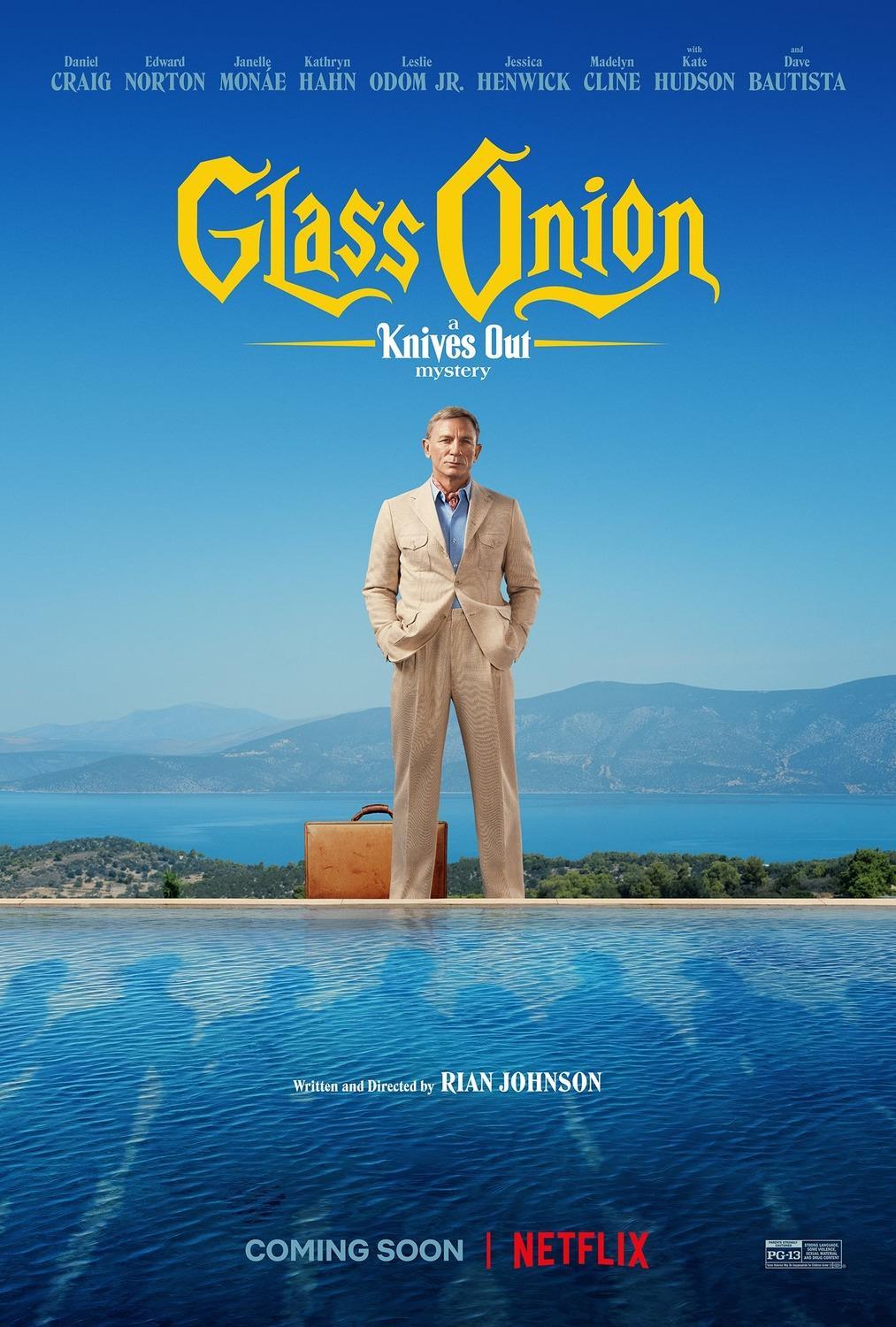

Vol. 1 issue 7
Looking Through the Glass Onion
Red herrings, obscure imagery and deciphering myths. Glass Onion is used to dive through the history of whodunnits. How does this sequel match up to the original? Is there something damaging newer movies? Are these streets not what they used to be? A kaleidoscopic journey exposing the truths of the modern murder mystery.
Sir, the Gravestones are Shaking
Netflix resurrects the September '64 competition of The Munsters and The Addams Family. Kelly explains why he's backing Herman and the gang all the way. Have we seen this kind of movie before? Justification is given for further gratification of Rob Zombie's latest. Bonehead Bill decides it's time for a 'chat' in his garage.
Kelly's Weirdest Christmas Movies Season 4

Guess who's back? And it ain't Slim Shady. It's Kelly's Weirdest Christmas Movies. Now in its fourth season, Kelly continues his search for the most absurd festive freak outs in existence. He will not stop until he's seen them all. With 2 Santasploitation films put out this month, there's a lot to be merry about.
What is PsychoCondo: Part 1-Asylums, War and the Battlefield
Finally, a potentially original thought round here. A tool is created to address an undeveloped area of cinema: environments. PsychoCondo can be used to explore particular places through a psychoanalytic lens. Borrowing from Psychogeography and auteur theory, the end result will be the opportunity to interpret what a space may represent in a directors mind. In the past, when psychogeography has been used in accordance with film it has been for realism. Whereas, PsychoCondo is more interested in surrealism. In part 1, we look at how different directors view asylums and battlegrounds. As well as, how they use such spaces to contain an allegory or have grappling ideologies and personalities as part of controlled narrative conflict. Time to enter the condominium.
In this Weeks Issue:
Looking Through the Glass Onion
Rian Johnson told you about Thrombey Mansion, you know the place where nothing is what it seems. Well here's another place you can go. Where everything flows. The current king of neo-noir offers up his latest murder mystery, Glass Onion. This time Blanc is shipped off to sunny Greece with a whole host of new characters. Or should I say suspects?
Meet the gang who unironically and embarrassingly call themselves: The Disruptors. Never without his piece, muscle man Dave Bautista plays men's rights activist Duke Cody. A spear gun loving dumbass shaped on Joe Rogan. Next up we have Kate Hudson as Birdie Jay, a stunning actress we're always happy to see but the hamming here as a politically clueless model is painful to watch. The ever odd looking Kathryn Hahn plays politician Claire Debella, careful, cold and looking for environmental solutions. Rising star Leslie Odom Jr is a scientist who will do anything for a discovery. Musician Janelle Monae is the silent ex-partner, who's almost too quiet. Finally, who can forget their leader, Miles Bron played by the ever dependable Ed Norton. Bron is a billionaire hippie with a "rudimentary" understanding of disruption theory. The losers club band together believing themselves to be 'cool' breakers of the system in each of their chosen professions.

Norton is quite possibly the saviour of the film with his ability to chew around the worst dialogue ever written. Ironically, as an actor, he could well and truly understand disruption theory because he's one of the only actors in the group who can take this to the edge without destroying the whole thing. To say Glass Onion is a smooth ride would be false information. Notably, it has received a warmer reception by American audiences. Perhaps, they can tolerate it's awful humour. If so, they can keep it. First off, it's 2022, why are we still making COVID jokes? Move on. Already outdated in that regard. As for the crypto jokes? Get to fuck.
You know, I blame Marvel for this but why are the mental ages of characters in films decreasing by the second? Thing is, I can get over Marvel characters doing it because that's their thing. I'll just try to stay out of it. The Marvel machine looks like it's collapsing anyway with recent efforts like Thor: Love and Thunder. What I can't hack though is when that shit comes over to my ball park. Remember that scene in the Coen Brother's A Serious Man when Larry Gopnik looks over baffled at his neighbour crossing the territorial line and trimming part of his lawn? That's how I'm feeling these days every time I watch anything that I'd normally enjoy.
Stay on your fucking side Marvel. Honestly, I'll stop criticising your decisions if you keep to your patch. Needs to learn a lesson about boundaries. Any further attempts at infiltration will only drive me mad. I mean look at Bullet Train Fight Clubs other movie star, Brad Pitt reduced to another pathetic wimp of a character throwing out lines like, "Holy shitbox", "eat a bag of dicks, lady" and "ah fucknuts". Marvelisation is the great evil of our time. That movie could have been a 90 minute Tarantino/Guy Ritchie knock off and I'd have passed it. Especially with a few David Leitch action sequences giving it some real John Woo appeal. Instead, though characters just talk and talk. I came here for fucking beatdowns not for that now classic popular line in way too many movies today, "Normally I'd whoop your ass but my shrink tells me I've got some issues to work on". Just shut the fuck up and throw some punches, you hear?
Pure and simple it's the dialogue that ruins these movies. Nowadays they spend about 10 pages until they get to the set piece. Dismantles the rhythm of the movie. This is why they created one liners for good economy. Keep the picture moving! This clunky dialogue is damaging the pacing significantly. We need a Roger Corman figure to just start pulling pages out the script. Really struggling to get through some of these coming out at the moment. Keep thinking maybe I should quit going the cinema and jump back on the train in about 10 years when this trend has passed.
1
Bullet Train then has the nerve to pass itself off as some Kurosawa/Frankenheimer epic at 2 and a half hours. Oh behave, you can't clumsily chop a bunch of scenes together and tell everyone you've created an epic. Edit it down to the right length and get a grip. If the narrative warrants it, then fine but if you're doing it for the sake of it and it doesn't happen organically cut the fucker down to its appropriate length. There's only so much Taylor-Johnson can carry on his shoulders before it loses steam. Why didn't they just create a 90 minute explosive action movie like John Wick? They had it in the arsenal with David Leitch but no the Marvelisation really ruins it.
Glass Onion isn't immune to similar treatment with a few horrible stinkers of its own. At one point, Benoit Blanc actually says, "Shitballs". Can somebody please tell me why 40/50 year old men are talking like this? Kate Hudson's character has the mental age of about 6. I know she's meant to be stupid but I mean come on, do they have to be this irritatingly stupid? Sort of takes away from the jokes when they aim this low. You'd think Ed Norton would be trying to avoid all this after his well-documented beef with Marvel following his involvement (or rather lack of) in The Incredible Hulk back in 2008. Largely forgotten about now but that was one weird movie. Tim Roth keeps thinking he's starring in some R Rated action movie like the director's previous work, The Transporter. Unmistakably at odds with itself. No idea how Roth handles his inclusion in the more recent She-Hulk. No doubt he's toned it down to be family friendly this time.
Back to my original point though, what's Norton doing here? Can finally understand his move to cinemas ugly sister (theatre) oriented projects with movies lowering themselves like this. At least over there he can speak like a normal adult rather than a fucking infant. Respect though where due, as I said, he makes the cringier elements of Glass Onion tolerable to some degree. An unbelievably talented fellow.
Newer audiences will complain about older '70s movies not having the strong sense of pace presented by modern movies. However, I'm starting to think perhaps it's the other way round now. All these movies I'm witnessing at the cinema today are so slow because of all this unnecessary and unfunny dialogue waying them down. It simply doesn't add anything, it only takes away from the picture. After watching Glass Onion, I had a craving for more whodunnits but of a decent standard and so went back to Christie classics Murder on the Orient Express and Death on the Nile. Both of which are bangers. Yet to see Kenneth Brannagh's versions but those '70s ones were fun. Would recommend revisiting those over Glass Onion for how this is really done.
Without a doubt the funniest jokes in Glass Onion are all visual sight gags. For example Blanc's matching swimming outfit is a killer. These are great and I wished they used them more. It would help with that pacing problem. Also, I'm lost as to why they don't have more faith in the actors and the direction. 100% this a is solid cast that can really act. Not one of them is weak. Not Hudson at her best but we've all seen Almost Famous so we know she's got the tools. This is just a misstep and consequence of a messy script. Funny, she was on a heavy ratio with me of how annoying she was against how down bad for her I am to let her get away with it. Unfortunately, the annoying side won out in this great cinematic battle. Also, Bautista's becoming the new Schwarzenegger with his lovable qualities. Where Jason Momoa hasn't quite achieved it, Bautista is. Want something trashy? Put him alongside the Guardians of the Galaxy? Want high art? Shove the silliest and smallest pair of glasses ever on him, make his dialogue minimal and get him in Blade Runner 2049. Whatever you want, he can deliver. He can make it work. Making the Schwarzenegger connection, regularly I watch Conan the Barbarian and the beauty of that is hearing Schwarzenegger trying to wrap his way round Oliver Stone's philosophical lines. In Glass Onion, there's something similar early on when Bautista's attempting to discuss men's rights. Something really funny about a dumb looking macho man trying to engage in intellectual discussions.
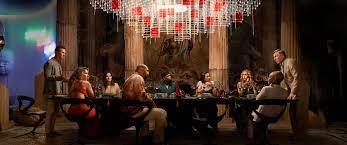
2
So proud of Mr Bautista and everything he's achieved so far in his career since his wrestling days. Makes me happy too that WWE has got such good links with the low budget DTV action exploitation market. Makes some of these dudes able to make the climb up quickly to becoming stars. Some of these aren't even all that bad either. Yet to see soft porn legend Gregory Dark's See No Evil horror movies with Kane but Roel Reine's really managed to distinguish himself in this arena. You may not believe me on this but The Marine 2 has a one on two fist fight so good it belongs in The Raid. Ok, maybe you have to get past repeated storylines but on a purely technical level they deliver on the action. You're sure to see a lot less cutting during fight scenes and they are economical. Both of which Hollywood just can't compete with. Bautista made his start with the likes of Wrong Side of Town and House of the Rising Sun Yet to see either but they sure look hilarious. He even went on to do the third Scorpion King movie with my man Roel Reine. Not saying all these movies are good conventionally but Reine's got a real gift for action sequences if you like your martial arts.
Forgive the overly long trip in to Bautista's past but just know I like Glass Onion's cast. And I hate to see this happen to them. It's like they wrote a really good whodunnit script and you can feel studio heads piping up over the shoulder about adding in all these terrible modern jokes afterwards. Reeks of that business. John Guillerman's Death on the Nile is less explicitly a comedy than Glass Onion but I know which got more laughs from myself. This is the direction I'd like to see films take again. One that puts faith in its actors to experiment with line delivery and for directors to mess around with conventions and cliches. This inserting line after line of awful jokes needs to stop. Although, it seems stupid to say, genuinely I'd prefer they played some of these genre movies straighter. That way they'd actually deliver the goods of the genre rather than some bland blockbuster product. When you've got a cast this good, I'm sure they can do subtly funny things with familiar lines. That's how you make it your own.
Back to the investigation at hand, being the consummate professional that I am, I had this case figured pretty early. Sadly, the opening act is a little too obvious. Alright gang, my first clue on this mystery was Mr Blanc not acting like himself. At first, I was thinking this is one of them sequel problems where the actor somehow forgets how to play the character. They buy too much in to the public perception of the original character and play it at an extreme level and the result is a caricature. After a while, it soon occurred to me, what if he's pretending? That led me to figuring out his partner in crime on this operation.
As for my chief suspect in the murders, that was easy, the one who was conveniently taken off the suspect list from the outset and never shown involved in the montage of mock murders. Finally, as for the location of the mysterious package, this one came from listening to The Beatles Glass Onion too much in preparation and Ed Norton's constant references to the nature of a glass onion. Whilst, this film isn't all that great, I remain fascinated by the concept of the glass onion. What a beautiful metaphor with all its red herrings. A genius use of the song, which was originally meant as Lennon's way of inversing the entire Beatles mythology and mocking the critics in the process. Red herrings get me so horny. Soon as I see one in a movie, I'm adjusting my black Borsalino, jotting down a few words in the notepad and stroking my chin for the next five minutes. Anyone who tries to speak to me or halt my investigation in any way is met with a "beat it, Toots!". To work I go. Nothing gets past this detective. Call me Mr Hardboiled.
Once you get past the first layer of the onion, this Knives Out sequel isn't all bad. All the scenes of Blanc and his accomplice discussing potential suspects are delicious for any murder mystery lover. Structurally, this is impressive too with the manner in which the second act mainly repeats the first but from different angles and perspectives allowing for greater information. Rashomon style whodunnit that will hook you completely, almost making up for the first acts shit show.
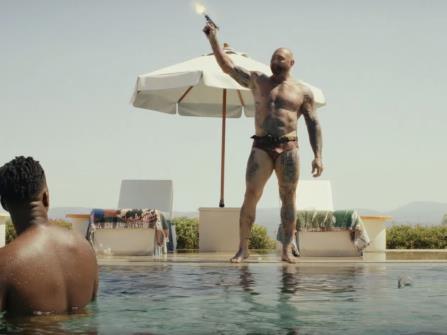
3
Not only does the second layer of the tasty onion make up for a lot of the flaws of the first quality wise, it actually does find excuses for the lack of quality through the narrative. Gets revealed it's all a deception. Sadly, it was too obvious to fool me. You don't gotta be Benoit Blanc to see through this one. I don't care if it has purpose narratively, it doesn't have to be so ugly and it also does it no favours that you see straight through it. Could have still had the situation being off without resorting to such an unbelievable extreme.
The story of the Glass Onion is one in which a decent whodunnit was nearly destroyed by shoehorned in humour. In fact, the strength of the first film is that it took a dark Fincher thriller like The Girl With the Dragon Tattoo and transformed it into a family comedy with undeniably strong pop appeal you could throw out at Christmas time. Yet, in being this family package, it never sacrificed the thriller elements. Make no mistake, that's not an easy task. They walked the line so carefully with the intricate family history to get lost in and there were still these perfectly timed eccentric moments for the Blanc character (comparing the case to a donut, making literary references with Gravity's Rainbow) that had you thinking there was a whole series here. Never does it sacrifice the integrity of the movie with too many jokes and so it treaded delicately to earn itself the widest possible audience. In contrast, Glass Onion doesn't have the same discipline. You have the court case and friendship fallout in the aftermath, which is something to sink your teeth in to. All that was strong enough to lead the picture but they overstuff the movie with pointless humour.
Personally, I find little things hilarious. Such as the way Blanc deals with a case in his own particular manner (stylish touches rather than overt comedy) but there was no need to really de-age the characters on this like it did. Solving the puzzle and playing the game is the fun to me but the shaky dialogue distracts you from that and ruins the picture.
Slashers, Giallos and even Scooby Doo have their murder mysteries but of the classic whodunnits, Clue and Death on the Nile remain the textbook examples. Yes, Nile is better than Orient Express if you ask me. Not the popular opinion and I'm sure the book is all that. However, the film is a different story. My favourite scene in any whodunnit is always when the detective literally sits the cast down to finally present his big theory. Always gets a laugh from me that one. Starts staring people in the eye uncomfortably and coming out with shit like "You could have had time to return to the parlour and switch the...". Every time the method is the same, no proof, all theory, the detective rattles the suspect in to submission. They make up some bizarre method of obtaining evidence and the killer confesses to everything on the spot. Kills me on all occasions. It's what we come to see. Johnson needs to return back to the old tricks and not let the studios bully him in to scenes which detract from those we love.
Orient Express is flawed due to Albert Finney's overly loud performance, which drowns out even the train's whistle. One of the best casts you've ever seen and all their performances lost due to this one maniac. Did he not get the memo that in this type of story the detective normally underacts to seem cool and collected? It's the rest of the cast that overacts if anyone has to. Naturally, he's the only Hercule Poirot to be nominated for an Oscar. They like loud over there. Despite, this simple problem, I'm convinced Johnson would be wise to return to how that film had such a focus on the interrogations using the confined space of the train. Although, they were ruined by Finney's acting, that is where the whodunnit can thrive. Individuality comes through via the little differences in the performances. The fun is in tackling the information each person gives. Choosing whether to mull on it or disregard it. I'd like a bit more subtlety in the performances next time. Everyone is so loud when it comes to the Glass Onion. When you've got everyone figured out from the outset, it just isn't very good is it? Shouldn't be coming in like a bulldozer first act of a whodunnit. It's against the rules. Try a little secrecy and tact. What the fuck ever happened to Everybody's got something to Hide Except me and my monkey?
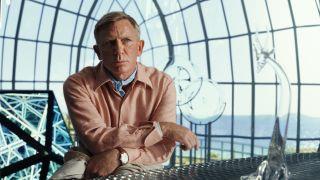
4
Knives out had me hungry for more of these films. The potential was there to keep going with a new location and cast each time. Only regular being Benoit Blanc. Set up was so strong on the first, the groundwork was laid out and I was completely welcoming of sequels. Now I'm not so sure. Shame because I've been a fan of Johnson's since day one.
Not always so sold on the teeny high school elements of Brick but it was original and exciting to see him picking apart the noir genre like that. Joseph Gordon Levitt was on some real form between 2004 and 2005. Didn't realise he'd been in all Johnson's movies. Even appears in Glass Onion, so keep an ear out for his contribution. Another cameo that amused me was Hugh Grant, who lives with Blanc. Either Hugh's his butler or Benoit Blanc confirmed gay. Usually, disapprove of the modern cameo, where the punchline is just ha it's this actor doing this! Hardly earned and it's always the same boring actors like Ryan Reynolds. But I have to admit these two were funny.
Looper was conceptually strong and had its Blade Runner-esque moments of respectability. Slows down a bit in the middle but the opening act has the makings of a classic. I remain as ever a fan of The Last Jedi. Could well be the only auteur Star Wars in history and one which actually explores the Jedi's faults properly. They almost did back in the prequels with the separatists but the character motivation is so vague and they just resort too quickly to simple good and bad that the point doesn't land. Before you know it Count Dooku is zooming off on his little bike across the skies and the film makes its decision to abandon any points it was making for trash. Funny though. Last Jedi may not be as fun as Rogue One or Solo (it's directed by carsploitation legend Ron Howard and features a heist so I'm an apologist, sorry) but the material is Star Wars at its most interesting for sure. Plus, it benefits from the fact nerds get so rattled by it. Always amusing.
A solid career so far. No need to ruin it like this. He's a good writer of noir just needs to know when to tell the studios to back off. Surely, he can do that with the list of films to his name? Before we get Knives Out 3, it's back to square one for Johnson. So far it's donuts > glass onions. My closing statements on Glass Onion is that in the words of George Harrison, It's All Too Much.
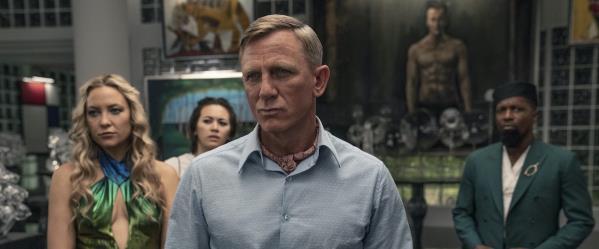
Bonus Points: -Peeling back the second layer of the onion gives us the goods Rashomon style -Bautista supremacy -The enticing concept of the Glass Onion -Blanc's matching pool lounging outfit Overall Score: 3/5 (Good whodunnit, terrible comedy, it's straight down the middle with a 3) 5
Sir, the Gravestones are Shaking!
2022, the year Netflix decided to reboot both The Addams Family and The Munsters. Originally, these sitcoms premiered about a week apart back in September 1964. Each ran for 2 seasons and have sporadically re-appeared with various films and series. Other than a few one off specials The Munsters hasn't really had a big hit. On the other hand, The Addams Family has been pretty successful. Sonnenfield's '90s films remain largely popular with Anjelica Houston and Christina Ricci becoming fan favourites in their respective roles.
Fast Forward to 2022 and we have a new series directed by Tim Burton and starring Jenna Ortega. Yet to check this out because first of all I hate Tim Burton and second of all I'm not on board the Jenna Ortega train. This Ortega could be great, she looks incredible and has become quite popular amongst horror crowds. However, she loves to keep this dull innocent persona and a lot of these projects keep sexualising her in a rather infantile way. This womans 20 years old. I know she's had to crawl her way through the Disney Channel heap to get here but if you ask me it's time for a re-think. So hit me up when we get naughty Ortega like when Vanessa Hudgens went off the rails and was bringing out low budget B-Movies verging on sexploitation like Spring Breakers. Show me Good Girl Gone Bad. Love that narrative.
I know she's been in X but she was far too 'sweet' in that, only got my attention when she opted to be in the pornos and her boyfriend had a good cry over it. This should have been her meta transformation from America's angel to dirty devil. So, I see this as a step back for her and as such won't be watching. A director will come along and utilise this young star to her full potential but it isn't going to be a bum like Tim Burton. Edward Shitterhands isn't the one. If he thinks he's got another Winona Ryder he can think again. She was always better in Coppola's Dracula than that lifeless rubbish she put out with Tim.
As expected this Wednesday series has been met with immediate adoration by the nerds who have kept a talentless fuck like Burton in business all these years. His continued appreciation is a mystery not even Benoit Blanc could figure out. Alternatively, The Munsters struggles again with finding its first real hit since the sitcom back in the '60s. Rob Zombie's new film of The Munsters has received its fair share of criticism. Just about everyone has taken the opportunity to berate it where they can. Whilst, in many ways it should be because it is not conventionally good, it is also dripping with a real passion for the original series and old school horror in general. All these aspects, make it so hard to hate and in many ways a guilty pleasure (if I felt even remotely guilty about liking it).

Unfortunately, this puts me in the terrible position once again where it is Scout Tafoya and myself defending a movie. Never met this man and know very little about this critic but he seems like a fucking wacko. Recall, back in 2013, Scout and I were in the minority camp of being The Lone Ranger apologists. Yes, the wild western starring Johnny Depp and cannibal Armie Hammer. When I say I low key love The Lone Ranger, it is not for the same reasons as Scout. He wrote a big piece comparing it to Heaven's Gate, saying it was some masterpiece that deconstructs American myths and some weird liberal nonsense if my memory serves me well.
Swear everything Scout praises is extremely sloppy. No, when I say I low key love The Lone Ranger it is because Balthazar Marie and I have a soft spot for Verbinski's Keatonesque set pieces. It's no more complex than that. Just good old chaotic slapstick. No need to intellectualise it any further. God, I hate when it's just Scout and me in the minority camp, as it probably means I'm wrong.
6
Defending The Munsters as a 'good' movie is completely pointless. You'll have a hard time trying to convince anyone. How it can become a good time is through a large quantity of alcohol and we're talking a lot. Embracing it as the years best Ed Wood movie is essential to enjoying what it has to offer. For future reference, this will be an award Funeralopolis bestows to one film each year that we believe has failed so spectacularly or undoubtedly achieved total camp that it needs extra gratification.
When the gravestones begin shaking, the production problems pile up, acting of a questionable nature and goofs become as common as dialogue, you have our attention. That's the way Ed Wood did it. That's the way Rob Zombie is doing it here. Self-mockery is more than apparent, so why diss it? There's amazing lines here like when Herman looks at himself in the mirror and goes, "I'm starting to think my material is too intellectual. Maybe I should return to my vaudeville roots". Definitely, a parody of how Zombie's 'intellectual' stabs like Halloween 2 have been received. Quite wholesome too in that Rob was raised in a carnival during his early years. Would happily see him take on something like Nightmare Alley one day.
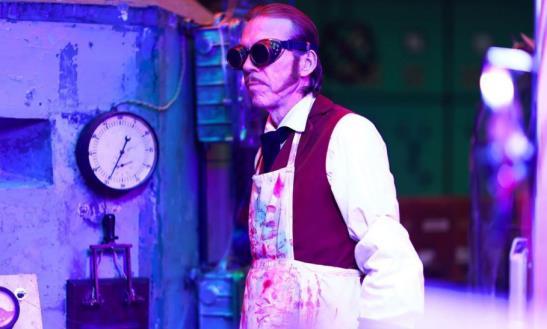
Unexplainably, The Munsters has a one liner woven in to nearly every line. Pure dad jokes. Aiming admirably low, gotta love it. The badder the better. If you're not being assaulted by these, Zombie is throwing the weirdest looking person you've ever seen on the screen every two minutes. Lily's brother the werewolf is a hard cookie to handle. Prepare yourself, you may cough up a lung every time he appears. Couldn't follow the dialogue at points because Bonehead Bill was on the floor in a heap, rolling round in a fit of laughter during all werewolf appearances. By far, the best scene is when they 'build' Herman Munster. Doesn't matter if you've not seen the show by the way cause this is basically a prequel. Although, I doubt there will be more. Those who have seen the show will know though, Herman has always looked like a rip off of Frankenstein, therefore, Zombie jumps on this joke and has him created in the same fashion. Hurley from Lost and Richard Brake steal the show in this scene, despite minimal screen time. They ham it up the way it should be done. Brake wearing these ridiculous goggles. Zombie shooting it with the comic book
Universal Monster die hards like myself are sure to revel in the exaggerated tone of the proceedings. Where this becomes divisive is in the neon lighting. Initially, Zombie planned to shoot this in black and white but the studio vetoed. He did get his wife in though as Lily Munster of course. Goes without saying. After, the studio rejected his black and white demands, in all fairness to him, Zombie did seek new ways to expand shooting style. His teaser trailer went down well which was a black and white mock trailer set up of the sitcom. Had the surf rock and all suggesting Zombie had nailed the originals appearance. Sadly, the second trailer in colour ruined the movie before it was even released. Couldn't tell you why but everything looked green screened and as though a horrible cheap covid production.
Having now seen the film, the colour trailer didn't entirely do it justice. The electro goth cityscape can be quite a quite a beautiful and unique addition to this old campy genre. Sheri Moon Zombie going for her strolls across town and taking it all in can be enjoyable in a hangout sense. No denying it though, at other moments it does look terrible. So can't really come to a strong final verdict on the look of the film. Other than to say there are times when it is unironically avant-garde and ambitious but others when it falls apart. Black and white has been demonstrated as what would have been the safer option but the bright colour scheme was very striking and brave.
Where the movie is mainly ruined, even for me, is in the pacing. 110 minutes was far too long considering half the appeal here is how much of an unhinged riot it is. Second half when they're searching for their mansion can drag a little. Still, if you take this as 90s/2000s camp kings Spy Kids, Scooby Doo and Batman Forever it isn't all that bad as your Saturday matinee event for the littlens. Strong emphasis on the alcohol requirement. Last year, it would have been fellow metalhead Danzig's Verotika but we weren't established then so this year it's officially The Munsters. Congratulations Rob on winning the Funeralopolis's first Ed Wood Movie of the year award! Go Go Zombie!
7
As though operating like clockwork, abruptly after Munsters finished, Bonehead Bill stops laughing, adopts a serious face and calls me in to his garage for "a chat". I ask him, "what about?". He repeats once more, "a chat". I'm looking around all baffled and so he speeds things up with a "come on". He sticks a hand out, gesturing me to lead the way. Opening the garage door, I can see the Sandero parked up. I look around wondering if he was showing me something in particular. Nothing seems out the ordinary. Apart from a plastic sheet on the floor for catching paint. My eyes drift to the tools on the wall and the question dawns on me. Am I being whacked? What a strange and peculiar friendship in that this man may kill me at any moment. In fact, it could be said on some bizarre level, that this could be actually what drives it. The total uncertainty keeps one on the toes and provides the zest for life. Should I take a hammer when he's not looking?
Slowly, he walks on over, picks up the hammer, mutters to himself, "that doesn't go there" and parks it down in a different spot. He asks if I can, "straighten up the screwdrivers". I comply and return with, "is that why you wanted to come in here?". He shakes his head for a noticeably extended period of time before finally adding, "the pseuds...what are we doing about the pseuds?". Ah, so that was the purpose of this conversation. Not too sure why this had to take place in the garage but here we are. "Nothing", I replied honestly. "Ooooooh" cries Bonehead like a confrontation just commenced in the Bada Bing. "What?", I responded in total confusion. "They fucking kidnapped you lad and you're not gonna do anything about it?", provokingly pushes Bonehead. Went on to explain how it wasn't a kidnapping about a million times but he wasn't accepting it. So I took another path in explaining that they're just kids and anyway after the Chicago Sun Roof incident, we were square.
"Far from square. Far from fucking square", shouts Bonehead with two fingers pointed at me and a zoot down to the bone in between. He must have forgotten it was there. "You disappoint me, Kelly. The Kelly I heard stories about would have ruined their whole lives in an instant with full disregard for dignity. And he wouldn't have needed a reason for it either", adds Bonehead in an act of persuasion.
I walked around the room, inspecting anything and everything to take my mind off the current situation. Wiping off a bit of dirt from the Sandero's side mirror, all I could think to say was, "that was a long time ago. Times change, brother". I really couldn't be arsed with this conversation. The evening had taken a turn for the stupid. Intelligence last years ghost. Sooner I'd be leaving the premises the better. Bed and a bit of Barry White was the only place to go from here.
"No, no!", refuses Bonehead, "let's look at this from a position of severity. Scales of action. We took a dump in their car. Ok, not the nicest thing to do to someone but under the circumstances...hilarious and I retain that they deserved it. Now, a crime like that, public defecation, carries a maximum of a £100 fine. As for the potential damage to property, that would technically come under temporary impairment at best, so you're looking at compensation. We can agree, the cleaning bill. About an hour of some unlucky fuckers time plus any call out charge. Let's say £50. Tops. Coming to a total of £150. Most importantly, prison time: 0 years, 0 months and 0 days. As for the offence committed by the pseuds. Kidnapping. Shit, that's life. They throw away the key for that shit like you're John Patrick Mason"
I can only stare at this clown and kindly ask, "what the fuck are you talking about?" "Lad I'm talking about the scales of action. The severity of the crimes", he rapidly responds, slapping the back of his left hand in to his right palm. "No-ones going to fucking prison here, what the fuck are you chatting", I interject, "No but ", he tries to get in before I can stop him in his tracks with, "so your argument has no fucking basis here. What are you trying to say here Bonehead? What are you trying to say?".
By now the pair of us both have our heads in our hands and are walking around the garage in circles either screaming, "oh my God!" Or "fucking hell" at each other as we try to argue our points unsuccessfully. Nobody let's another person finish their sentence. We descend in to high pitched nonsensical gibberish. Bonehead begins slamming his hands down on the Sandero in frustration unable to finish his sentence as he screams, "lad, lad, lad!". Not even knowing what to say given the chance, he gives up, let's out an "urgggh!" And volleys the garage door.
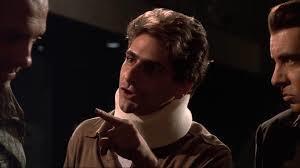
8
Barry White feels like a distant memory. My heads so gone by this point. Enough Bonehead Bill will do that to you. We both take a minute to cool down. Bonehead comes over and says, "let's try this a different way. You remember when they left you out in the peaks, in the freezing cold and you had to walk all that way back. That pissed you off a bit, right?" "Tell me about it", I confirmed. "When you got lost...in the dark, bet that pissed you off even more. Come on you ain't got to lie to me", throws in Bonehead with a smile. "Yeah but that was the other week. I'm over it", I mentioned haphazardly, convincing no-one. "When you got in to my car, you didn't say a word. Don't think I didn't notice that", he continues casually. "Yeah, but ", I say looking for an excuse before I'm silenced with, "Uh, uh, let me finish". "When you got in my car you didn't say a word...", Bonehead shrugs then follows on with, "Face like a smacked arse. If I'm not mistaken you were looking for blood"
At this point I could only laugh. With a solemn look on his face, Bonehead cut me off with, "Don't laugh. They embarrassed you. Let's face it. You got terrored man. Given, it should have been me since I did the dirty in their shitty Corsa. But they got you. That doesn't sound like all square to me. They made a fool of you. I didn't want to say it. But it's true. All that matters is how you deal with it. Look, I've spent a great deal of thought on possible retaliation. I say we go to Def Con 1 on this one". Sometimes this guy loses me. What was he saying? "Def Con 1?", I ask with a screwed up face. "We go to war with the pseuds", Bonehead Bill throws out like it’s the most normal thing in the world. "War?", was all I could muster. Bonehead Bill puts his hand on my shoulder and follows up with, "We're going to war with the pseuds. Say it with me. We're going to war with the pseuds". I said it back with him, "We're going to war with the pseuds". Chuckling, Bonehead begins rubbing my neck and tapping my chest. He must have remembered that down to the bone zoot between his fingers because he re-lights it and hums the riff of Cream's Toad to himself as he bounces on over to the door.
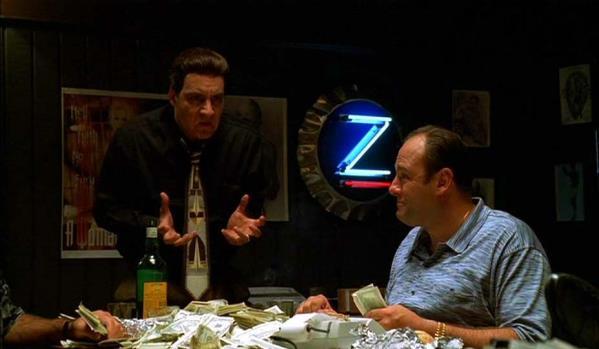
Bonus Points: -Being the Ed Wood movie of the year -Getting his wife in to the movie as per -Hurley from Lost and Richard Brake going all Dr Frankenstein/Burke and Hare -Bringing back The Munsters! -The electro goth aesthetic that was ambitious to say the least -Blatant self-mockery -Feeling the need to throw in an awful one liner every single line Overall Score: 3.5/5 9
Kelly's Weirdest Christmas Movies Season 4
1. Silent Night Deadly Night Part 4: Initiation (1990)
This series is what I use to kick off every season. The aim is to find the fucking weirdest Christmas movies possible every December. Sad to think there's only one more left after this. They've treated me so well. The gift that keeps on giving. Back in 1984, Part 1 was the film to measure all christmas slashers against. More than that, it was a fantastic slasher in its own right and is finally being recognised as such. Some will pick Christmas Evil , which is this Taxi Driver like descent in to madness but it is a little depressing. Almost too anti-christmas. Silent Night Deaadly Night is the one for me. Dude goes round chopping people to bits and repeatedly shouting, "naughty" at his victims. The deer horns kill is timely and well executed.
Part 2 is awful mainly using flashbacks from the first and I'm not just talking for the prologue, we're talking half the movie. However, one scene has gone down in history. I refer to the now iconic, "It's garbage day!" scene. Part 3 caught me off guard again with Monte Hellman directing. Known for his revered acid westerns and cult road movies. Why is he showing up as the director of Silent Night Deadly Night Part 3? Imagine Lynch directing A Nightmare on Elm Street. The main character is even called Laura and goes off the rails too. She's being investigated for psychic abilities. Who's the doctor? Benjamin Horne. Who then shows up out of nowhere? Leo Johnson, the man who needs a new pair of shoes. He has sexy bath time with the incredibly good looking Laura Harring from Mulholland Drive. Bill Mosely walks round with a strange contraption on his head where you can see his brain. Very slow, very weird, very Lynchian.
Another great surprise this year with part 4 in that Brian Yuzna takes over directing duties. A mischievous bastard with a love for all things body horror who directed Society and the Re-Animator sequels. He brings along his mate special effects legend Screaming Mad George (actual credited name). It plays out as exactly as you'd expect, even less of a connection to Christmas than the previous entry and an excuse to be some gross out shit. You're waiting for some Christmas references and all it wants to talk about is spontaneous combustion. That topic has always made me giggle ever since the absolute riot that is Tobe Hooper's Spontaneous Combustion. Both released in 1990, must have been the thing to talk about that year. People randomly igniting and going up in flames? A great premise to me. This then takes a turn and becomes The Craft before finally settling on being Society. Underrated if you have a taste for bugs and all things disgusting. 4/5
2. Violent Night (2022)
Universal doing a Santasploitation movie? Damn this shit catching on. Almost like the concepts really funny or something. David Harbour as the big man himself? Sure, he has daddy qualities. John Leguizamo bad guy? Course, he's a feisty fella. Beverly D'Angelo as the milf? Sorry Gilf now, it's been about 24 years since American History X hasn't it. Time flies. She still hot though, that hasn't changed. Directed by Tommy Wirkola (Hansel and Gretal, The Trip and the Dead Snow series). B-Movies is definitely his thing but he seems pretty boring. A hack? Could well be. The Nazisploitation Dead Snows never could match the shock received from the likes of the Ilsa films, The Night Porter and Salon Kitty. That's exactly what Violent Night feels like. A watered down studio film of a genre which originally caused outrage amonst parents because they thought psychologically a kid seeing santa climbing out a chimney with an axe might just fuck them up. The directors of these films response to that always killed me, their view was that if you could convince your children Santa was real, you could convince them Santa wasn't real. Skip forward to now and this movie has been totally saturated and capitalised on by a studio. If you're gonna hack away everything that made them good to begin with to achieve acceptability, you've lost me.

10
It doesn't play by the rules at all. 112 minutes is far too long for a start. Like Bullet Train, this is due to the fact it hammers in too many shit jokes which get in the way of the David Leitch action movie it could be. Far too corny for a movie called 'Violent Night'. I'd let it off if it was for the kids but it isn't. You won't believe it but this is a 15 certificate/R Rated. What a waste. Home Alone was nastier than this. Naughty list. 2/5
3. Dead of Night (1945)

For those who like their Amicus anthologies (Asylum, The House that Dripped Blood, Dr Terror's House of Horrors, Tales from the Crypt) this Ealing Studios classic serves as a kind of prelude in style. Utilises that dreamy surreal looped structure of Carnival of Souls. No matter how many times you see that narrative used, in the right hands it remains playful and rich. Also, this could well be the earliest I've ever encountered it in cinema. Scorsese named this amongst his scariest films and you know what it's pretty damn creepy and unsettling. Set up is this, an architect looking for work at a country farmhouse. Once he arrives, there is a gathering of people and he believes he encountered them all in a dream the previous evening. Each of them tells their story and it appears they are all connected by meetings with the unexplained. Dead of Night itself foresees many greats down the line like The Twilight Zone. The ventriloquist tale is the most discussed but there's one involving a mirror which connects a man with a murder that's equally freaky. The connection to Christmas? I think one story has a Christmas party. Very loose but glad I got to see a classic. 4.5/5
4.
The Day of the Beast (1995)
Deeming this essential viewing. Easily one of the best offerings of this type of movie in the '90s. Perhaps you've heard of the old biblical legend about three wisemen taking on the lords mission of attending the birth of one Jesus Christ? Yeah well, The Day of the Beast flips that on its head to become a modern day quest of three dumbasses tasked with preventing the birth of the anti-Christ. Our heroes? A manic priest, a dirty metal head and a fraudulent TV psychic. Can they stop the reign of evil coming on Christmas Eve? Leave that to you to find out. Naturally, as its set in the '90s and our priest is searching for signs of the Devil's presence, there is a great deal of metal on the soundtrack. So one can expect to have Ministry and Pantera blasted down the ears repeatedly. Since, we're dealing with a Spanish production you will also be assaulted with some obscure Spanish groove metal. After watching the metal head bopping to Ktulu's Apocalipsis 25 D in his car, I have to say I have been converted by this terrible shite. It's the little Church bells that have me off every time. 4/5
5. Black Xmas (2006)
To a fine sample this remake is some misunderstood masterpiece but to the majority it's an insult to the originals legacy. Personally, I sit in neither camp but I'd certainly swing more to the majority take. Obviously, the original has its place in history as being arguably the first slasher ever and so this was never going to live up to that. Accepted that from the outset and just tried to have a good time. They light this baby up like a Christmas tree to recreate the Giallo's neon glow. Nearly every shot is oddly placed with these wonky angles that are far from the creativity of The Third Man's Dutch delicacies. However, it's almost admirable in the way it is trying to achieve confusing scene geography and narrative dizziness of an Argento movie. Honestly, I do think it's intentional but it doesn't succeed. They have thought about camera placement but it's all the wrong choices. Gives you a headache rather than a cinematic thrill. Luckily, the cast is likeable (Mary Elizabeth Winstead) and it is doesn't copy the original. The occasional flashes to different time periods with intense sexual activity and kills was cool but could have been expanded on. Everything is a little too rushed and chaotic. Ultimately though, I do respect it for using subtle elements to evoke the Giallo rather than copying it. Shame, it's a little tacky. Word of warning, there is a Dick Cheney joke that will catch you off guard. 2.5/5
11
6. The Legend of Hell House (1973)
Instantly familiar to those who regularly revisit Rodriguez and Tarantino's Grindhouse project. Slap bang in between that double bill is the mock trailers. Edgar Wright's Don't is a parody of this haunted house movie. After a brief stint making Disney dross for the nippers (that I bet low key are great), British director John Hough switched over to horror. My man even has carsploitation under his belt, Dirty Mary Crazy Larry, referenced in the Beastie Boys banger, High Plains Drifter. Hough's masterpiece remains Twins of Evil. A Hammer horror with a psychedelic twinge courtesy of cinematographer Dick Bush (funny name). Belongs to the Matthew Hopkins corner of cinema with your Witchfinder Generals and Mark of the Devils. Hell House has one of the slickest openings going. A team sent in to prove the presence of the paranormal at mansion in the lead up to Christmas. When they pull up to the gates, you'll be convinced 20th Century Fox has itself a gothic masterpiece. Sadly, things go a bit too quiet and uneventful in places with not enough set pieces to maintain itself fully. Regardless, the slow brooding atmosphere ensures this is still a great movie that Blumhouse movies can only aspire to be. 4/5
7.
Christmas Bloody Christmas (2022)
Love that Black Sabbath inspired title. We've been blessed this year with two big Santasploitation movies. Nothing sums up the roulette experience of seeking out the weirdest Christmas movies year on year like these two. Violent Night-so bad it'll have you thinking the big studios have cottoned to our fun, the movements over, so clear out your locker, pack up your shit and get the fuck out of town. Then, on your way out the door, up shows Joe Begos's Christmas Bloody Christmas. Yeah baby. And just like that we have what I believe to be the best Christmas slasher since Silent Night, Deadly Night back in the '80s. First act is this High Fidelity hangout picture. A record store owner and her sleazy moustache donning colleague decide to head on out for a few drinks on Christmas Eve. Quickly, these opinionated fucks turn to unpopular takes, touting off their festive favourites music and film wise. As expected Bob Clark is mentioned and edge lords being edge lords they discuss alternative Christmas music like Ramones. Do like that one but no need for the Bad Religion. Later, they move on to Pet Sematary and how the boss believes the sequel is the superior. She is correct. Clancy Brown chasing Ed Furlong to The Jesus and Mary Chain's Reverence? No contest. This is the point she chooses to bring out her heaviest takes on The Blair Witch and Chucky series. Thankfully, before she can say any more, her good friend the record store employee, decides the sexual tension has reached its peak and it's time to take things upstairs. The correct decision. Anyone who has opinions like that is destined to be exceptional at going heels to Jesus (Tis the season). It's that simple. They have a peculiar mind to get lost in and start doing dumb shit for. Having made it upstairs, no intercourse occurs. Just straight head. The adult happy meal. Cleaning out the fish tank. Donning the beard. Gorilla in the washing machine. Husband's supper. Stamp collecting. Whistling in the weeds. Totally unforced feminist re-evaluation that was both satisfying and sexy. It is exactly this scene where Begos makes his presence known. His brand of stoner metal fuelled sleaze with grainy 16MM footage. The Bliss director does things the Funeralopolis way, making him our greatest student who we have great hope for in the future. His critics continue to attack his lack of originality. Firstly, I don’t think anyone who makes a Christmas slasher movie is going for originality. We all know the usual theme of anti-commercialism. Having a rogue toy figure going on the fritz is nothing new. This is just seasonal silliness. Secondly, at least his retro films look, sound and act the part, which is more that can be said about recent frauds. Plus, I think he does add something to this genre, ushering in the modern droney soundscapes rather than just being totally '80s dependent. He drowns his films with more fog and haze than Fulci's Conquest and combines that with slow riffs. Only fella to really double down on the future of horror Mandy suggested. Of the last few years, Silent Night and Another Wolfcop has been my Christmas horror modern measure, this wipes the floor with them. This was originally intended as a Silent Night, Deadly Night sequel but the producers thought he strayed too far from the original concept. He's turned this in to The Terminator. Does exactly what it says on the tin. Now, go and get your satanic Christmas kicks! 4/5

12
8.
'R Xmas (2001)
Abel Ferrara made a Christmas movie. That in itself is wild to take in. Wilder than the movie. Was expecting maybe something closer to his exploitation origins such as The Driller Killer or Ms. 45. Perhaps with the clear crime angle a Christmas companion to the outrageous Bad Lieutenant. In the end, not necessarily a bad movie but a slow moving piece not appropriate or fitting for Kelly's bag of goodies this time of year. Ferrara's outlook on illegitimate business is that it doesn't mix with family. What better way to prove it than at Christmas time? A few of New York's politicians get a scolding here in its criticism of particular policies. Ice T and Drea De Matteo have genuine chemistry and the world being built is interesting enough. However, the primary narrative could do with a shake-up. Feels more like a pilot than a movie. 3/5
9.
Die Hard (1988)

Look, I am a simple man. I'm a Chubby Checker kind of guy. I like to do The Twist every summer. I'm also a John McClane kind of guy. I like to see Hans Gruber fall from the Nakatomi Plaza every winter. If I'm not doing these things year on year, I'm in the mud. Therefore, booking in to see this festive favourite at the cinema every December is a must. 33 Years on and its popularity as a Christmas crowd pleaser is only growing. We wish Bruce all the best this year given the news of his health and subsequent retirement from acting. He is and always will be a legend. Die Hard's tight precision in the opening act is something all action movies should aspire to. All the little subtle nods to the husband and wife separation are the very reason you care so much about them once the kicks in. Me and the boys don't declare it Christmas til that son of a bitch Hans Gruber is falling from the skies. As soon as he's fighting for his life gripping on to that Rolex, I'm rearing to go. At Funeralopolis, we take quite a light view as to what the definition of a Christmas movie is but if you want the proof Die Hard is one, it's there in the Rolex. Another thing referenced in act one. Rejection of material goods in favour of family togetherness? Isn't that the true meaning of Christmas right there? 4.5/5
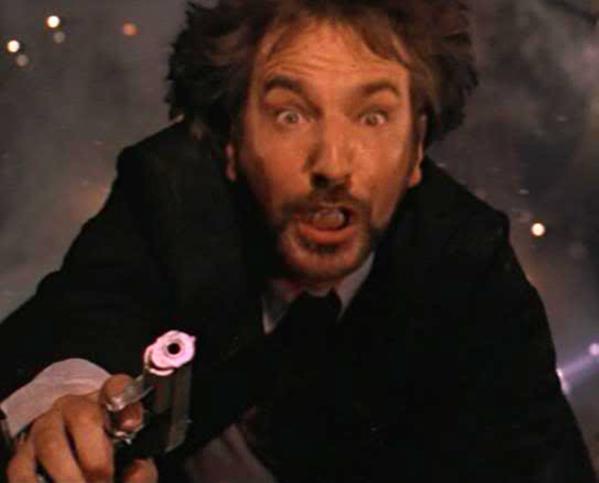
10. I Trapped the Devil (2019)
Josh Lobo's debut has been met with a rather mixed response. Another slow burner in which, a man believes he has captured the Devil in his basement around the festive season. Unfortunately for him, his family shows up for the annual drop in and upon noticing someone locked downstairs, they fear that their close relative has gone completely insane. Where this has split people is on the script. Obviously, on a situation such as this, the expectancy is to explore the meaning of the Devil and what he represents. What qualities would force a man to associate an individual before them with the Devil? Such questions are not cleanly answered or neatly addressed. Those who will defend such sloppy antics is in the atmosphere and the style. Whilst, it never fully finds meaning in its premise, it's undeniably a treat for the eyes and ears. Give this guy a writer and he may go on to do better on his sophomore effort. I see potential. 3.5/5
13
11. Tokyo Godfathers (2003)
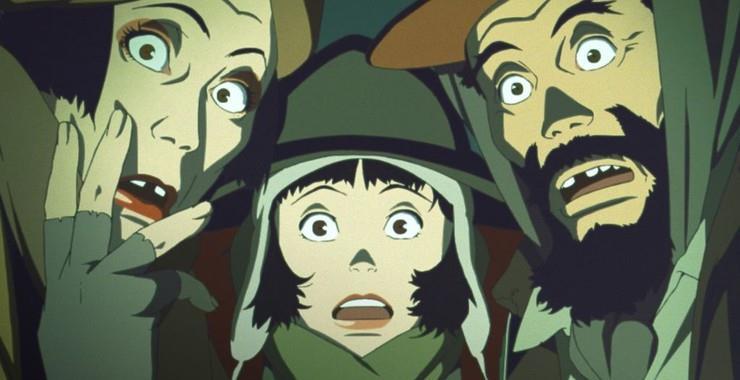
Taking the same road as The Day of the Beast, Tokyo Godfathers makes a return to the big book. On this occasion, the three wise men are three homeless people in Tokyo. Their mission: to return a lost baby in the street. Directed by Satoshi Kon, who gave us the greatest anime of them all Perfect Blue. Admittedly, I'm not as clued up on anime as I should be. There's just too many shows with daunting lengths. However, this reminded me of your dark seedy underbelly of Hollywood movies such as Mulholland Drive, Blonde and Sunset Boulevard. Darren Aronofsky is blatantly a fan ripping off the story for Black Swan and lifting so many shots for Requiem for a Dream, he had to pay rights. Remains amusing that interview where he admits to not knowing who Mario Bava is and proving his real inspiration all along as Perfect Blue. Tokyo Godfathers never reaches the dazzling heights of Satoshi Kon's Perfect Blue but it is so unbelievably wholesome that it's hard to pass up on. Our three homeless individuals all have their personal battles and seeing them come together to overcome their tragic pasts is wonderful. They are fine examples and Godfathers to us all. Maybe it's time I checked out Paprika? 4/5
12. The Guardians of the Galaxy Holiday Special

(2022)
Boldly and unapologetically opens with animated footage of Starlord's childhood with Yondu. You may understand why and what it's making reference to, I refuse to speak its name because it still gives me the shivers worse than any Christmas time chill. No surprises that Yondu is a bit a bit of a Scrooge. Wanting to make up for Starlord's cancelled Christmases, Mantis and Drax decide to bring him a special someone as a gift. The man who made every '80s kids childhood. He danced to save a town. He took an arrow to the neck for our entertainment. He fought 30 foot long carnivorous worms. It's the most connected man in the galaxy, Kevin Bacon. No wonder everyone knows his name. Now, this truly is as cheap as an EE advert and comes armed with a plethora of phoned in performances. You can see it on their faces, they're waiting to ask the same question, "When does my pay check come in again?". If anything that only adds to the humour in places, given they're all fully aware. Gunn remains one of the only men in Marvel (and now DC I guess) who can get a laugh out of me. He's our man on the inside! Although, he should never be allowed too much control of the AUX. No-one needs to hear his indie rock and emo acoustic rubbish. He can keep that to himself. Keep The Pogues coming though. Bautista can't do any wrong and the Bacon is up for anything at this point when it comes to self-mockery. All for Bautista and Klementieff's chemistry and future solo outings with shorter running times. After all, who gains from long superhero movies? Camp them up, dumb them down and serialise them again. No need for all these 150 minute adventures every time. Best part was them drinking together in LA. Obviously, Bacon handles the kidnapping well, this isn't his first rodeo in space. We close this with more animated footage that proves Yondu not to be such a Scrooge after all, a wrapped up present for Starlord is revealed to be his iconic guns. A happy Starlord and his adoptive father then go off exploring the galaxy together, that is sure to put a smile on anyone's face. Always had a soft spot for Michael Rooker because Henry is such an underrated performance and The 6th Day is one I grew up with. As far as Christmas specials go, not utterly horrific. Hope the kids love it. They deserve some fun this time of year. Undoubtedly, any other time of year under a more critical lens, this would be no higher than 2.5 but tis the season after all! And this is so innocently inconsequential. Therefore, I'll lighten up and give it a pass. It gets there in the end. Could be worse. Could be you know fucking what! 3/5
14
Not to be confused with The Jesus and Mary Chain's 1985 noisy debut Psychocandy. An image to bear in mind when discussing PsychoCondo would be Dom Cobb drifting on to that beach with the waves crashing in to the worn out buildings that crumple in to the sea. Is there a greater gift in cinema than to wash up on to the shores of a directors subconscious? In the dream world, Christopher Nolan is best able to explore his one great obsession: time and how we perceive it. Although, pretty flat and one of his weaker efforts, Dunkirk is his best at using time with realism as we see when each unit became involved that day all cleverly overlapped.
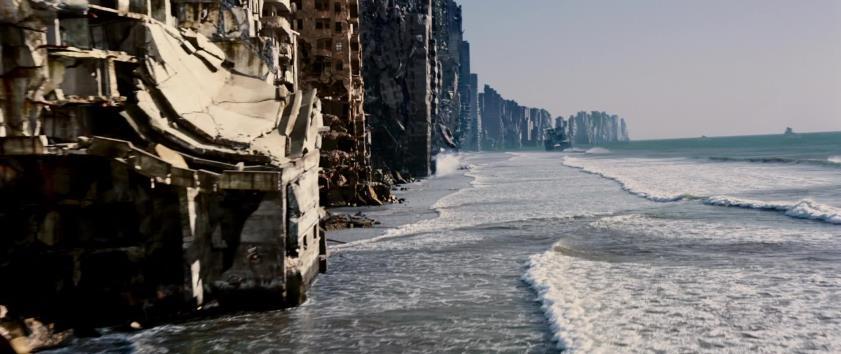
Unfortunately, Inception does take time in the most obvious, simple and sentimental Hollywood fashion with how it could affect a couples cycle. Even that though is distracted by the foreground story of the rather entertaining heist. Generally, Nolan is at his most interesting with the time element in his work when he uses it to explore how it affects set pieces. My guess is he's a huge Griffith/Eisenstein fan but if there's any credit I'd give Nolan outside of being a fun blockbuster guy, it's his cutting during set pieces. How long did that bus take to fall again in Inception? An action movie with different levels and time distinctions was formally pretty dazzling. In its heavy handed exposition, it explains that the bottom level of all dreams, 'Limbo', a purgatory like state, is created by the dreamer and whoever shares it with him. Weirdly, the dream seems to work that way in production too, as its made up of both Nolan and star man DiCaprio's collective consciousness. Around the time, DiCaprio had an obsession with playing dudes down so bad from psychotic wives. Many have commented on how Inception could be another Andrew Laeddis fantasy. Perhaps, he just wasn't feeling creative enough to come up with an anagram that day.
Inceptions greatest failure is that it does not utilise Limbo to its full capabilities in a way Fellini or Fuller would have. In this case, I have only used it as a starting point for PsychoCondo that everyone could recognise.
What is PsychoCondo:
Part 1-Asylums, War and the Battlefield
Perhaps, I should have started with David Lynch's The Red Room or Lost Highway. These visual motifs represent the very start of creation. A space to represent emerging thoughts in their most raw form. For Lynch, the sooner and more unfiltered the better. His images work best at their most coded and mysterious, further meaning can be damaging. Square one is the full process. They are not the means to a goal, they are the goal.
Are we getting any closer to the meaning of PsychoCondo? First and foremost, it is concerned with location and what a space may represent within a filmmaker's mind. Let's be clear, this is separate from corporeality, props, costumes or character professions. All are tools at the filmmakers disposal. In the films of Cronenberg and de Van, body horror has been used for sexuality, individual rights and the last line of defence in the face of capitalism. In the films of John Woo, gun play has been used to evoke classic sword play from '70s Wuxia pictures. In the films of Tarantino, suits have filled the place of a warrior's armour in the modern day. Finally, in the films of Schrader, gambling is compared to the path to redemption. Both of which involve repeated actions with the hope of a victory that may never come. These areas of film have all been written about to a great extent, whereas for some reason environments remain unexplored especially through a psychoanalytic lens. Although, separate to these elements, PsychoCondo may use each of them to establish its overall world.
Outside of film, it takes its roots from psychogeography. Guy Debord defined this as, "the study of the precise laws and specific effects of the geographical environment, consciously organised or not, on the emotions and behaviour of individuals". Being the auteur purist that I am, I am more interested in the way the director formulates these spaces rather than the way they are necessarily received and would like to see more written about how these chosen locations can tap in to the filmmakers subconscious becoming a map of the mind. As for the name itself, the latter part I take from condominium, meaning an "ownership structure whereby a building is divided into several units that are each separately owned, surrounded by common areas that are jointly owned" Put the two together and I propose that we call this PsychoCondo.
15
A very direct image of how this game works would be Kaufman's Synecdoche New York. In that film, the central character becomes obsessed with trying to compartmentalise everything in his life. An absurd result of a total rejection of chaos. There is the link to theatre in that people are given roles to play within the protagonists mind as he attempts to control everything. If that sounds like Shakespeare's All the World's a Stage conundrum that's because it is. Kaufman takes PlayTime to an extreme level and manages to incorporate his usual themes of time and identity. Another director, like Nolan, concerned with the tick of the clock, except Kaufman tends to go past the corny Hollywood antics and in to the existential.

Kaufman is always concerned with the abstract nature of the mind but he isn't a pure PsychoCondo filmmaker per say. It's only when he filters these thoughts through a specific location does he touch on PsychoCondo. Synecdoche wouldn't be his only foray in to the field, Being John Malkovich presents a steady arena for his recurring ideas. The head of a celebrity. Except, Kaufman strips his chosen celebrities personality leaving just the body as a site for creation. He wants the viewer to wonder what they would project in there and so it's essentially a giant form of ventriloquism tackling our obsession with being someone else. It deals with the fantasy of playing another character and our lack of satisfaction in the self. We don't even want John Malkovich's thoughts, we only want his body and celebrity status. So to Kaufman, the site of another body is an empty shell we can project ourselves on to. This may come close to corporeality and maybe there is a crossover but the way he articulates the inner sites with tunnels and portals, I think this comes under PsychoCondo too.
In its purest form, The Shining remains PsychoCondo's finest film with Shock Corridor a close second. As far as Stephen King adaptations go, Stand By Me will always be closest to capturing King's world in an autobiographical manner. Apparently, when he first saw that he had to go to the toilet to compose himself before he could congratulate Reiner. On the other hand, Kubrick's vision of The Shining absolutely rattled him.
Reiner sought to find the King in Stand By Me by making the writer with a few insecurities the focus of the story. Kubrick went the complete other way and used King's material that was interested in ghosts and applied that in a wider sense to America's history. Allowing the film to be part of the horror of history with unavoidable truths.
In the early scenes, Jack Nicholson's character mentions that they are not far from where the donner party succumbed to case of cannibalism. Mise en scene (massively important to PsychoCondo) is manipulated more than ever so that constantly on show are the eagle ornaments occupying desks symbolising a Nazi presence and Native American artwork fills the walls. Furthermore, we are informed that, "the site is supposed to be located on an Indian burial ground, and I believe they actually had to repel a few Indian attacks as they were building it". Could the blood pouring out the elevators really be that of the dead Native Americans? Doors certainly cannot contain the truth in Kubrick's kingdom.
Specifically that angle always reminds me of the haunting line from Hooper's Poltergeist, where the Dad manically says over and over, "you moved the cemetery but you left the bodies. You only moved the headstones". Goes through me every time that one. Both films serve as cautionary tales against capitalisms destruction of other cultures and inability to hide its horrible past. Put simply, you cannot just rebuild over the remnants, that which is below and cannot rest will return to the surface eventually. Therefore, The Overlook Hotel is a site where the horror of history is free from time and the reformists, retaining its full power. Consequently, The Shining (oddly not always understood by fans) is the ability to perceive time from a logical position and navigate with order. What the character in Synecdoche was unable to do.
Being assaulted by time is an intention within Stone's Natural Born Killers Think back to the scene in the Native American's shack. Stone hits us with the collective guilt over the classic images and problematic history of the western along with personal trauma from childhood resulting from parental abuse. A stream of consciousness linking the two pasts together and playing them out in the present. An undisturbed montage, as horrifying as it gets.
16
This sequence in NBK is reminiscent of the Fitzgerald quote, "tired, tired with nothing, tired with everything, tired with the world's weight he had never chosen to bear". Essentially everyone has their own pain and past to contend with, once you factor in the world's past, the weight only grows heavier. Like with Limbo, there is the increasing awareness of a shared space. Hence, why I think the concept of the condominium is strong in that they can represent the "Complex itself as well as each individual unit within" in the same instance. Over any length of time, this only gets harder to bare. Our protected planes become infiltrated and damaged like in Synecdoche New York. Firstly, you have to accept the world's problems and then you have to accept your own place within that. The harder of the two being the latter.
In NBK, Mickey during this opening half, in which he is free to roam the great lands of America, cannot come to terms with these problems and so acts out viscously against the Native Americans. Thus, the cycle of violence continues. Often, a recurring joke in movies and books featuring artificial intelligence, when faced with a complex question they cannot solve, machines will shut themselves down and turn off. Our human response to the irrational and unanswerable is repeatedly violence. Ironically, Mickey is more at peace with himself and understands inherent violence and its place within species once he is locked up in prison. During an interview with Wayne Gale, he expresses his belief that murder is something all animals take part in and so his engagement with it makes him king of the jungle, a superior being in the evolutionary chain to other men. A sort of fascist mentality prevails in the survival of the fittest mindset. The desire to conquer and prevail as the dominant species with no thought given to morality turns NBK almost in to a war movie. Replace Native Americans with the Vietnamese and it’s no different from Stone's personal experiences shared through his 'Nam trilogy.
Whilst never a explicitly a PsychoCondo movie in the fullest sense, that one scene is a vital part of the movie and a fine example of how to deploy this technique. There are many locations in the movie but that one in particular sums up so much of the events.
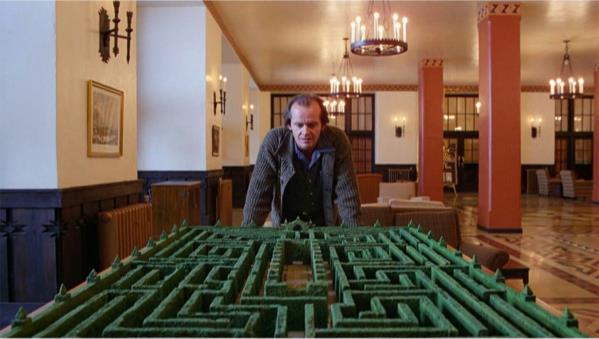
When we see the cuts to anime, Stone's own movies projected on the walls (comedically used to add to the debate on media promoted violence) and historically controversial figures looming in the background like Stalin and Hitler (and on Leonard Cohen's The Future heard in the film) the film itself takes on the form of a vision you'd have in the Shaman tent. Purely a fever dream somewhere in between America's real dark violent history and the medias promotion of violence. The image of the Native American's shack is the movie to me and one you can't help but keep referring back to.
PsychoCondo is not a genre, I will accept style or more accurately a tool to unite and analyse films seeking to transform spaces to reflect their filmmakers minds. This tools king is none other than Sam Fuller. Throughout his career, he has explored its capabilities possibly the most and was one of the first to really acknowledge its full potential. However, you can see some of PsychoCondo in German Expressionism from 1920/30s. Notably, The Cabinet of Dr Caligari, the first movie to take influence from art movements and put a film in a reality which mirrors the characters state of mind. What was the purpose? To wake Germans up and warn them not to fall under the spell of dictators. Something they ultimately failed at given Adolf Hitler's rise to power. Even from its origins though it seems war has been a big part of PsychoCondo. Some will say there may have been traces of it in Alice in Wonderland and Wizard of Oz, although they do little for me personally.
In 1963, Fuller released Shock Corridor, which remains his magnum opus on the subject of PsychoCondo. He envisions a mental asylum as a gateway to America's greatest fears. A beautiful metaphor, since that place is historically used by its people to dump those who cannot be handled or remain a threat to the continued functioning of society. All that they want to hide is thrown there. In a sense, the asylum is also a burial ground like The Overlook. Therefore, it allows Fuller to dive right in to what truly scares people.
17
Not before long, in a scene which mirrors Night of the Living Dead's lynch mob attacks, a herd rushes after a black man in the films creepiest scene. Racism prevails and all America's dirty secrets are revealed. PsychoCondo can make use of any location but the most popular tend to be asylums and battlefields. Asylums present the opportunity for multiple competing personalities and battlefields competing ideologies. War and fighting is a huge part of it as the aim is to take a central theme and have people wrestling over beliefs. A violent visual essay. The beauty of having a simple location is that it keeps the allegory grounded allowing the director to keep a firm grip on the ideas and not let them slip away. They are contained within the place. These films could be accused of swinging towards melodrama since the characters are representations of a larger idea. Such a method though does provide a greater scope that realistic drama couldn't reach.
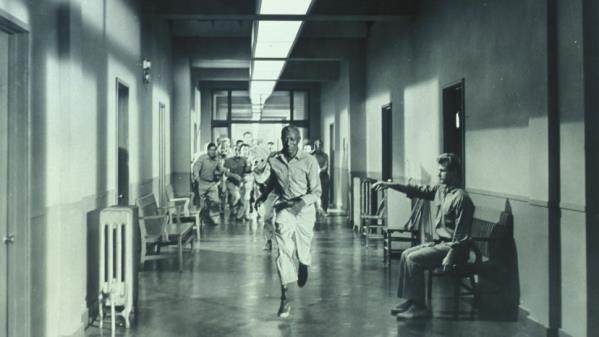
Other notable uses of the asylum can be seen in Shutter Island, One Flew Over the Cuckoo's Nest and The Ninth Configuration. Always been of the view that Shutter Island is highly underrated in some fields. It's detractors cite the familiar twist going right back to Psycho but there's a lot beneath the surface that delights on revisits. Scorsese taking the opportunity to capture the B-Movies of his youth such as those of producer Val Lewton and director Sam Fuller is a treat. His inspirations go that far back that it's a rare refreshing gift to see someone returning to that kind of filmmaking. Comparable with Robert Egger's appreciation for silent classics like Nosferatu. Sadly, most filmmakers can't go more than 10 years in to film history.
Lewton is arguably the best producer of all time and a strong challenger of auteur theory based on his unusual levels of involvement. His own film, I Walked with a Zombie is an exercise in PsychoCondo. A line that stuck with me was, "Everything seems beautiful because you don't understand. Those flying fish, they are not leaping for joy. They're jumping in terror. Bigger fish want to eat them. That luminous water, it takes its gleam from millions of tiny dead bodies. It's the glitter of putrescence. There's no beauty here, only death and decay...everything good dies here, even the stars"
This line is reminiscent of Herzog's words said during the making of Fitzcarraldo, "Of course there is a lot of misery, but it is the same misery that is all around us. The trees here are in misery. The birds are in misery. I don't think they sing, they just screech in pain, nature here is violent. I would see fornication and asphyxiation and choking. And fighting for survival and growing and just rotting away" Fitzcarraldo is absolutely PsychoCondo. It's a real story about a dude who decides to lug a boat up a hill. Of course, Herzog, being Herzog he decides to do this for real and wages his own battle with nature. I walked with a Zombie is another humans vs nature battle. Used to highlight the ugliness and violence present in nature. It's a very dreamy film with the camera drifting through crop fields in a way that's hard to avoid the colonialism evident in western culture.
Shutter Island borrows many of I Walked with a Zombie's investigations in to what human treatment should be. Whether it's elaborate role play or shock therapy. Since, it's set during World War 2, there is all this postbattlefield trauma driving the insanity. Those scenes of Laeddis/Daniels dreaming of concentration camps are highly disturbing on a level that matches The Shining. Endless rows of bodies lined up and covered in snow as terrifying Penderecki bangers make your hairs stand up. For this Scorsese teamed up with The Band's Robbie Robertson to design a horrible soundscape of John Cage inspired modern classical. Many crossovers with artists that were used on The Shining like Gyorgi Ligeti. Makes you wish Scorsese did more horror cause to say its unsettling is an understatement. There's images in that movie you never forget.
Impossible to have an asylum with World War 2 survivors and not think of the Nazi's own diabolical experiments. Shutter Island presents this fear of a German takeover of medicine. Dr Jeremiah Naehring (played by Von Sydow) represents this possibility. With him comes their methods of complex brain surgeries. He explicitly makes the connection clear between trauma and dreams, in German they mean the same thing. Trauma being the tool as an excuse to suggest people were mad and as a result, guinea pigs for study.
18
Given the horrors seen in battle, insanity really is catching in that movie and the protagonist knows only too well that it could be used against him. Hence, his refusal to take responsibility for any of his actions. He's another character who responds to unanswerable situations with violence.
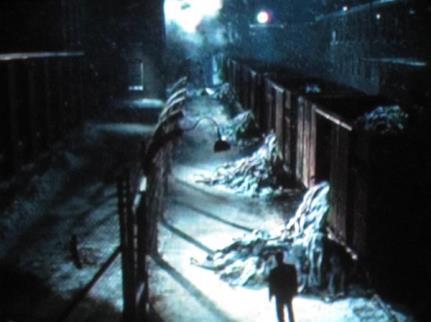
Two scenes always get me excited. One of them being when that patient grabs hold of Daniels/Laeddis from behind and screams down his ear about H bombs. "Do you know how a hydrogen bomb works?" Is a line that never fails to make me laugh. Scorsese does the most Scorsese thing on the explanation when the patient says, "to the thousandth, millionth degree", each unit is a new cut with the final being a huge wide shot making the two characters look tiny. That's the man who's got to do 3 cuts for someone getting in to bed or cooking pasta. It's editing like that, which gives his films the ferocity they have. My love for Scorsese and Schoonmaker's editing aside, what's great about this scene is the apocalyptic future it suggests. Uncertainty is definitely what drives Shutter Island. There's the detective story straight from a pulpy novel which is always a guilty pleasure but the background stuff gets ignored by some critics. That whole atmosphere of nuclear war and Nazi experiments on the horizon lifts it to a level of brilliance.
My other favourite moment is when that Warden is looking to openly antagonise Daniels/Laeddis. My man the Warden looks to stir his enemy by saying, "There's no moral order as pure as this storm. There's no moral order at all. There's just this. Can my violence conquer yours?". Shutter Island has all the features discussed so far of PsychoCondo. Single location in the asylum, which turns in to a battlefield with competing personalities and ideologies. The quote above is eerily similar to both the incarcerated Mickey in NBK and the ones from I Walked with a Zombie and Fitzcarraldo.
The Ninth Configuration features a bunch of ex-war vets who went AWOL, now in an asylum essentially running the place themselves. Even the commanding officer sent in to rehabilitate catches some of the insanity. It mixes farcical comedy with darker studies of suffering and religion. Yet to fully figure this film out but its images have power, I'm constantly wrestling with to unpackage.
The freakiest and most memorable is a shot of someone walking on the moon and spotting Jesus Christ on the cross. Now, the religious Batty who wrote The Exorcist may have had other ideas when he came up with this insane image but to me that is a depiction of man's need to take Jesus with him in to the unknown. Therefore, like the Warden in Shutter Island's quote, The Ninth Configuration is about the ridiculousness and absurdity of attempting to maintain order. A common theme when one ventures in to PsychoCondo and builds the condmominium.
One Flew Over the Cuckoo's Nest uses the asylum as a spot for conservatism and progressivism to battle it out to the dying breath. Alongside Punishment Park, this is the defining battle of the '60s. The hippies and the revolutionaries against right wing traditionalism. Randle Patrick Murphy's freedom being taken away from him by Nurse Ratched and being forced into living a particular lifestyle. The state wanting to turn him in to a more manageable zombie to make life easier. It's a story written by Ken Kesey of The Merry Pranksters, an outfit of outsiders who went touring the US with Day-Glo daydreams of freedom. This guy believed acid would cure the world and cause peace, which he tried with the Hells Angels. His book is a little less silly. Makes sense though that Murphy's crime is pretty much being a nonce. Generally, seen as a light issue then but even more so by those oddballs associated with Kesey. That weirdo Allen Ginsberg was a member of North American Man/Boy Love Association (NAMBLA) after all. For those that don't know, a paedophile organisation. Fucking nonce. So yeah, much of the '60s counterculture revolution is written in to Cuckoo's Nest along with the more sordid details for better or worse.
In a bizarre twist, who is it who helps Randle at the very end? Chief, a Native American puts the poor bastard out of his misery using nothing other than a pillow. He then proceeds to lift up the heaviest sink in the world, launches it out the window, escaping to freedom and reconnecting with the lands. That wonderful music plays as he runs in to the hills. Nothing fills a man more with excitement than the chief just getting off and leaving the asylum behind. Just like that, we're back in familiar territory with the horror of history and the foul treatment those fellas received by the hands of the atrocious Americans. This shit writes itself.
19
Although not set in an asylum, the king of PsychoCondo has an institution film of his own with White Dog. The action is set inside a dog kennel and what we have is a racist dog. Yes, he's a real racist piece of shit. Don't let the adorable snowy white exterior fool you. This guy's been trained to exterminate black intruders. A commonly practiced technique taught years ago. Such beasts are called a White Dog. The dogs new owner forms a bond with man's best friend, who in her presence is nothing other than lovely. It's only when black people appear this doggo chooses violence. Gracefully too with an Ennio Morricone score for the racial attacks.
Rather fitting in that you can only spot a racist when it's not with its own. The owner takes pity on the bastard as its clearly been taught this behaviour by someone else and so can it really be held responsible for this? Therefore, the new owner decides to take her racist dog to the kennels to see if a black trainer can do something about the situation. Fuller asks the serious question of can racism be cured? Can it be untaught? Or is it just inherent? It's claws too locked in and institutionalised in the system? Fuller's closing statements are not to be missed. Marley and Me fans will be horrified and appalled by this film.
Literal war films aren't quite as interesting to the PsychoCondo inclined because they're a little obvious and part of this game involves smuggling. Using something to talk about something else. A form of leapfrogging. Many war films come too close to realism, where PsychoCondo is more concerned with surrealism. They're too literal when PsychoCondo demands the abstract. Even psychogeography itself was originally used by the surrealists and Dadaists. So it remains odd that people talk about it to describe the films of British social realist directors. However, there are some films which have managed the task of going above and beyond even in the obvious arena. Of course, Fuller did it himself with The Steel Helmet. Should probably mention that man's an old veteran, who saw the horrors first hand, so no wonder he's a master of this style. What makes Steel Helmet qualify for PsychoCondo is the fact he sticks a church right in the battlefield and stages most of the action here as a means to bouncing straight in to religion and morality.
Apocalypse Now achieves PsychoCondo too. Amusingly and possibly arrogantly, Francis Ford Coppola once declared at the 1979 Cannes Film Festival, "My film is not about Vietnam, it is Vietnam". Bold claim but his film genuinely succeeds at this. It's a total rejection of realism and through surrealism actually finds a way to be Vietnam better than any conventional war movie like Platoon ever has. Through the surfing, drug use, rock concerts and all out madness Coppola recaptures the experience itself for you to get lost in rather than telling you about the experience as most war films do. Its voice over is much more coded than factual. The thrill is in it taking the viewer through the heart of darkness rather than simply Vietnam.
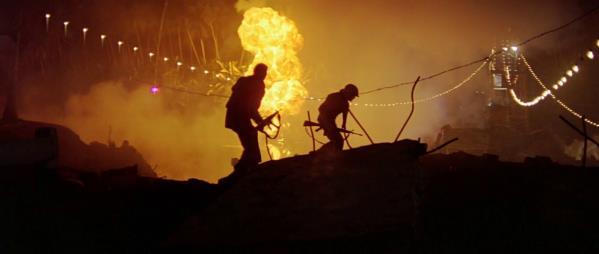
No easy task, which is why both Apocalypse Now and Fitzcarraldo have such incredible documentaries about their troubled productions. These movies are not just about merely showing the jungle and nature, these filmmakers fought battles against the elements. They seek to meet its past and know it inside out. Evidently, PsychoCondo is not easy, it's very dangerous. You're not just filming your environment, you're becoming one and attacking it at the same time to understand its laws and behaviour. Sometimes, the chosen space doesn't always play nice.
Apocalypse Now is basically about soldiers terrified of the unknown and trying to recreate home in Vietnam resulting in an extraordinary hybrid. Instead of Jesus, it's RocknRoll. The logic in the film is adequately baffling with the mention of recurring set pieces such as the rebuilding of the bridge (conjuring images of purgatory) and a lack of leadership (in command and also God), which borders on the existential. There's an entire mission where they look for an individual in charge and cannot find anyone. After searching for a good few minutes, they abandon it and get back on the boat. This mirrors that classic quote from many movies of "God left this place a long time ago". Even the leaders we do see such as Colonel Kurtz and Lieutenant Colonel Kilgore are completely unhinged.
For sure, Apocalypse Now is war at its most trippy and cinematic. Those synthesisers belong straight out of a horrible grindhouse movie and as for the use of Rise of the Valkyries? That belongs straight out of a Leni Riefenstahl Nazi propaganda movie like Triumph of the Will Goebbels would have been absolutely delighted at such a scene. Never could he achieve anything so fascistic and evil. Gives me the shivers just thinking about it.
20
Sound wise it's lethal and in appearance it's just as deadly with the orange colours becoming the Day-Glo bomb. The closing scenes and the opening mirror each other with the 'bomb' on its way and 60s hit 'The End' blaring out by The Doors. Many have commented on the seemingly looped structure of the film, in that at the start the character had just been on a mission and is looking for a new one as he loses his mind in a bedroom. The jungle becomes a purgatory like state somewhere between life and death. Could it be that Apocalypse Now, like Point Blank and Carnival of Souls is a death dream?
Different cuts of Apocalypse Now (Redux and Final) reveal more of the '60s counterculture with extended surfing activities and leaders gone insane by random occurrences such as stolen surfboard. However, they also highlight the flaws of the scenes involving the French imperialists who stayed behind. Those are a great tragedy. Whilst thematically completely relevant to the plot, echoing a possible future for the Americans and emphasising the similar mistakes by the French, they're shot in a totally different style to the rest of the film. Gone is the surreal atmosphere in place of realism. Despite the conversations being gripping, they look far too like classical Hollywood films. A terrible shame. It's not necessarily the pacing that's hurt because it's not useless information, it's the style that’s hurt. That was always the intention of the Final Cut to keep the additional material (which is wonderful) of the Redux but fix the pacing. As I said though, it's not the pacing, it's the style. That's what observing this through PsychoCondo helps reveal.
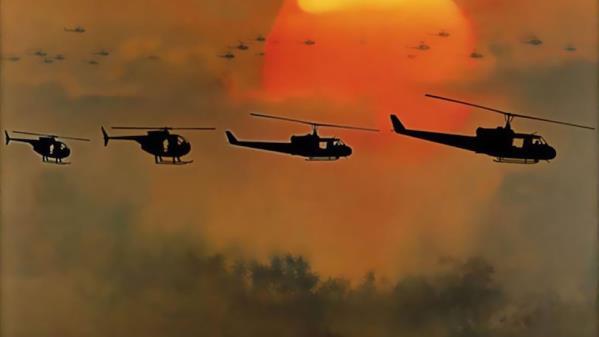
On paper, coming across a bunch of French soldiers in Vietnam who've been there for years is very dreamy and psychedelic but unfortunately it's just not shot that way. Needed more of a Romero/Fulci look about it as though zombies in the wilderness. No idea what Coppola was doing that day. Maybe he thought he was making The Godfather again. Should have smoked some more doobies or got hold of a couple more tabs when shooting them. The only really fitting bits stylistically take place upstairs when Captain Willard is lying on the bed and the woman says, "there are two of you". Needed more like that going on downstairs instead of that naturalism. What is clear though, Apocalypse Now works at its best when avoiding realism and entering PsychoCondo mode.
And what is the famous line from Apocalypse Now? "The Horror! The Horror!" Utters Colonel Kurtz as he meets death. The horror of what? History? This shits writing itself again. During the movie, Kurts even mentions about the need to "make a friend of horror" and that "if they are not, then they are enemies to be feared. They are truly enemies!". This sounds an awful lot like coming to terms with the shared space nature of the condominium. If we cannot accept the actions of those before us, then the whole thing falls. This is the madness of PsychoCondo. It's what we build as a response to chaos but at the same time if we build it too successfully like Kurts borders close to, we may answer too many questions and even the unanswerable, leading to insanity and a lack of purpose. Dangerous either way, if we build it, Shoeless Jackson doesn't just appear. We're doomed if we do, we're doomed if we don't.
When Willard is briefed on his mission, there's those themes cropping up again. The general says, "Well, you see, Willard, in this war, things get confused out there. Power, ideals, the old morality and practical military necessity. But out there with these natives, it must be a temptation to be God. Because the rational and the irrational, between Good and Evil. And good does not always triumph. Sometimes the dark side overcomes what Lincoln called the better angels of our nature. Every man has got a breaking point. You and I have them. Walter Kurtz has reached his. And very obviously has gone insane". The boat in the film represents order and safety, to stray from that in the jungle, you're on your own, it causes one to obey the laws of that environment, losing their sense of humanity and morality in a bid to be king of the jungle/God.
There have been war movies which sidetrack from the natural and recognisable battlefield completely to enter PsychoCondo territory. When the wars are brutal and involve children, the frequent trick is escapism and retreat in to fantasy. Regularly, this can be seen in Mexican and Spanish films such as Pan's Labyrinth, The Spirit of the Beehive and Tigers are not Afraid . The intention of these movies is to contrast the adult and violent realistic nature of war with the innocence of childhood.
21
Children have a much greater imagination than adults. It's no secret that the best way to write any movie or book is to get in to the headspace of a child.
In An Actor Prepares, Stanislavsky wrote about setting tasks for adults to get in to the frame of mind of their characters but children finding the process easier. The aim is to take real and complex themes and then dive in to the childlike fantasy and escapism. That is the key to PsychoCondo. There are no half measures. It's basically a bigger game of playing with toys, instead of simple names they now have separate ideologies and personalities and there's much more at stake but make no mistake, it's the same game.
War in its literal sense is generally fought between alternate nations but on either side is people. Therefore, war is a humans game. This doesn't stop the PsychoCondo oriented from seeing the bigger picture and involving the most unexpected party: nature. Human lives are lost but inevitably through collateral damage the environment falls victim to such destruction. These deviations in to physical nature can be seen in the likes of The Thin Red Line and Princess Mononoke. Terrence Malick has always had nature on the brain. In Badlands, a wayward couple move out of town and start a new life in the jungle. They build their home out of whatever resources are available and live off the land. A re-evaluation of space the family unit. Such thoughts have led to weaker films such as Captain Fantastic and The Mosquito Coast . As well as the all-out insane Cannibal Holocaust, which contrasts the jungle and New York environments to create the ultimate battle of what civilisation truly means.
Later in his career, Malick would make an existential film of a man growing up in Texas with The Tree of Life. In attempting to answer how we got here, he unironically gives us an entire sequence of evolution that looks straight out of a David Attenborough show without any of Kaufman's humour when he did the same in Adaptation. A very pure soul that Malick, it comes as no surprise that his take on a war movie with The Thin Red Line would feature cuts to wounded animals caught in the crossfire and a central character who keeps going AWOL to immerse himself in nearby villages. The most Malick of all Malick characters him.

That's twice now AWOL soldiers have popped up in this piece. Going AWOL is key to PsychoCondo, filmmakers have to wonder from a known space and into their subconscious. Noticeably, a large amount of PsychoCondo movies recreate Vietnam in the streets. New York or Los Angeles becoming the urban jungle. Examples of this include Taxi Driver, The Warriors, Predator 2 and Death Wish 3. Taxi Driver cuts through the worlds from multiple genres to create its very distinctive self. The Yakuza was Schrader's first script written a few years prior to Taxi Driver based on his brothers fish out of water experience getting mixed up with Yakuza members in Japan. With that, Schrader sought to combine American and Japanese mythology. In the process subverting noirs (American) and samurais (Japanese). As was revealed, Sydney Pollack was not really the man to do this. He makes a very beautiful and romanticised film lacking a modern sense of violence. He does not build the condominium.
It took Scorsese to be the man of the moment, going past the obvious and transcending the ingredients of the material in to a mythological whole. The climactic bloodbath of Taxi Driver being the perfect example where Travis Bickle goes in to samurai mode in a sleazy New York apartment and even attempts a warriors suicide. As soon as Travis's Taxi pulls up there's something so off about it in appearance. The censors took real issue with the violence of the scene and forced Scorsese in to changing the colour of the blood with a filter. If you ask me it does him a favour as it takes it even further away from realism into another realm. Still, I don't think it's just the blood that achieves this. Watch closely, the second the taxi pulls up, the whole thing looks shot in an entirely different filter to the rest of the film as though the quality of the film comes all sweaty and deteriorates, favouring phantasmagorical.
The Taxi Driver was the perfect profession to depict the changing landscape of New York. A first person view. A man begins to see the chaos of the jungle in the New York streets. It takes the porn theatres and grindhouses on 42nd Street and in an exaggerated manner embodies what viewing that culture daily on the screen and in the streets would do to an individual. The zombies are pouring out from the screens and walking the streets.
22
Amuses me when Travis has to push past a drug addled man in the street just to step in to a café. These guys are everywhere. By the end though, saturation of screen and streets becomes so complete, we get the horrid look of the climax where you can't tell what's New York and what's inside a grindhouse movie. There isn't a line Scorsese can't walk perfectly whether it's between morality or separate worlds. Without fail, he always finds the perfect spot of controversial and weird but never losing his audience.
Scorsese even brings in his love of John Ford's The Searchers and definitely improves on it. I'm yet to change my opinion on The Searchers being a bad movie. Sorry, I struggle to believe a director and star who hated Native Americans as much as they did could possibly create this nuanced impression of violence and racism. But hey, there's the Native Americans again. Simply impossible to get away from what was left in Limbo by the other dreamers. Do I believe Scorsese could present a nuanced impression of violence and racism? Absolutely. Taxi Drivers greatest skill is how it embraces man's inherent flaws and the anger without ever endorsing such behaviours.
Some fools refer to Travis Bickle as a hero. That was only the way the media positioned it at the end. They decided his fate. He was a man drawn to violence and succumbing to it. A psychopath, neither good or bad. Luckily, he committed a decent act of saving a 12 year old caught in prostitution. One should not forget though his senator assassination attempt. It's taken me many repeated viewings to work out why he wants to kill Palantine, considering he spends half the movie supporting him. Many get too distracted by the meaning of it as though there was some purpose involved. Palantine's slogan, "We are the people" (with the 'are' underlined) is often quoted as a motive with reference to nationalisation making the murder attempt political. Don't think it's that complex, Travis isn't smart enough to understand politics. Dude doesn't even understand his own feelings.
In one of my favourite scenes, that is perfectly placed before the movies increasingly dark turns, Travis seeks out his boss to tell him of his inner torment but can't quite articulate his depression.
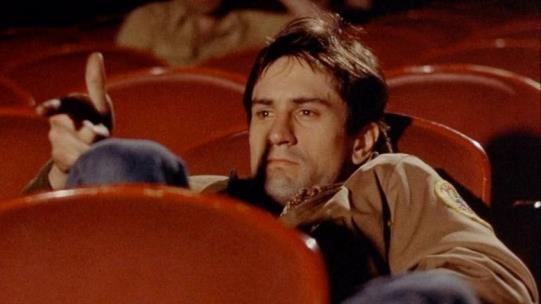
Such a beautiful scene that still seems ahead of its time on the topic of male depression. Anyway, I don't think Travis ever fully understands his own motives. He falls lucky with his failed assassination attempt in that he can then go save the young girl. I'm sure though had he killed the senator, he wouldn't have been made out to be the hero he was by the media. He'd be doing time like John Hinckley Jr and Arthur Bremer did. Why do I mention those names in particular? Interestingly, one of these guys inspired Taxi Driver and the other was inspired by it. Reality and fiction blurring in to one. Travis was not politically motivated, he was simply drawn to violence no matter what. The need to commit violence was the motive and who he was to commit the act on almost irrelevant. Fate pushed him in a different direction. In Scorsese's New York, the media dictate truth and reality. They create the false order and control.
Taxi Drivers New York is split between reality and fantasy. You're constantly questioning the world's believability. Pauline Kael referred to it as a 'black comedy', which always confused Scorsese but there is a lot of that in Travis's actions that have you thinking, "Is he for real?". This is a man with no understanding of culture and social normalities. Adorably, he is clueless about music and decides its perfectly acceptable to take a woman on a first date to a porn theatre. In his head, this is acceptable as The Lyric was considered one of the more respectable grindhouses. It's certainly better than his usual dingey dives. However, it's still a grindhouse and it's still a porno. The thought just never occurs to him that it's just a very strange thing to do. The ending is equally humorous in that you're under the impression Travis definitely died and this is far too convenient that his girlfriend forgives him. Scorsese is straight up mocking just about every typical ending of a noir.
Thanks to Bernard Herrmann's score, Scorsese is able to head in to Hitchcock. Leaves the viewer in a dreamlike trance somewhere close to Vertigo. In fact, it goes so far in to that, I'm not even sure if Travis Bickle ever served in Vietnam. Most likely, it's a flaw of the movie but have you seen the way DeNiro handles a gun at the shooting range? Motherfucker blinks after every shot fired. No chance he's got much weapons experience.
23
Taxi Driver then could well be a fantasy of a fantasy. That's where it's New York world is operating. As I mentioned, Travis ideology isn't even cemented. All he has is a romanticised view of having an ideology to live by and so he remains breakable. Scorsese once described Travis as living somewhere between a dream and reality. Never quite awake and never quite asleep. He went on to compare this to psychosis and how no sane person could ever live like this. It's impossible to function in everyday life and be in this headspace. Without a doubt, the place he refers to I think is exactly where PsychoCondo begins. These are locations where we can simplify complex ideas into that of a single place and address them in a very melodramatic way.
Schrader later wrote Rolling Thunder. An amazing grindhouse movie that Travis Bickle could well have seen about a Vietnam veteran on a violent path. Take note though, as thrilling as it is, like with The Yakuza it never enters the realms of PsychoCondo. The writing may attempt it but the direction doesn't manage it. Understanding the difference yet? Compare Predator 2 with Dark Blue and you'll come closer to seeing the difference. Dark Blue is written by crime novelist James Ellroy and filmmaker David Ayer. It focuses its attention on the Rodney King riots, so as you can expect, it's an exercise in gritty realism like Training Day. Ayers problem is always the same. He wants to do gritty realism but can't help venturing in to PsychoCondo operatic gestures like trying to make LA this gargantuan city akin to a Roman Empire about to fall. The guy just can't make up his mind.
On the other hand, Predator 2 firmly sticks to PsychoCondo. Both films are about the Rodney King riots but Predator deals with it indirectly and presents it in this psychedelic comic books fashion completing the filtering process required for PsychoCondo. There is the obvious Vietnam in the city as they bring the Predator to the concrete jungle. Even has this hilarious opening gag in which the camera zooms across a few trees to fool us into thinking we're back in the jungle but soon reveals the location as Los Angeles. We then move in to gang culture. The first received some criticism for the creatures dreadlocks (using African cultures as a mean to go in to tribal warfare). Predator 2 makes no attempts to apologise for its imagery, instead expanding on it.
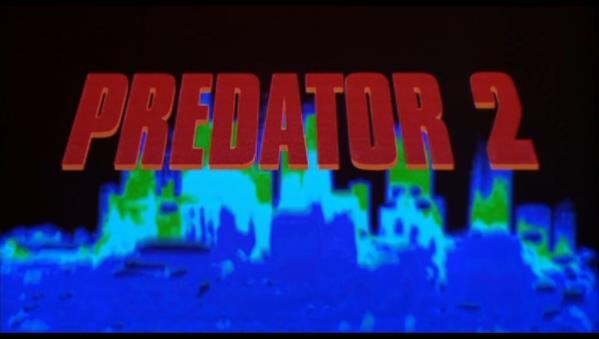
In the opening scene of Predator 2, which was even more criticised, it kicks off straight away with gang warfare against the cops. You get to witness cinemas second most obnoxious and loud shootout in a city with racial connections. Yes, you heard second. There's just no beating Michael Bay's Bad Boys 2. A film, which showcases just about all Bay's ugly 'pornographic' sensibilities that it has to be seen to believed. The results of his take on Miami Vice are so extreme and disgusting, I praise them.
Talking about Predator leads us in to another tangent of PsychoCondo. The hunt movie. I'm surprised more of these don't get made. It's a cheap, easy and economical way to make a dumb action movie appear more artful and clever. In the case of Predator, the jungle becomes a site for toxic masculinity. I know what you're saying, a bunch of dumb macho men would never have been able to come together and make such a movie. Nope, not consciously anyway. PsychoCondo is as equally entertained by conscious and subconscious thoughts. Such a view of Predator is unavoidable all things considered. Look at the damn production for one, it's no wonder it seeped in. There were reports that each cast member would try to show up to the gym an hour earlier to the point that people were secretly arriving at 3AM to do their workouts. There were also many bicep measurements taken and competitions held between the cast. If that's not toxic masculinity, I don't know what is. Further movies in the series have, like the most recent have presented different warriors for the predator to fight but the masculinity remains.
The Warriors understands the relevance of the subway system to black culture in New York. They are the escape route from danger for our framed gang. Documentaries such as Style Wars emphasise this with the graffiti on them becoming a place of artistic expression. Musically, Hip Hop legend Nas's debut album Illmatic begins with the sounds of trains and a sample of Wild Style about a Graffiti artist. To Nas the trains are the connectors of the city and a site for blacks to display their art. That's his New York. Alternately, when it comes to the kung fu obsessed Wu Tang Clan on 36 Chambers, New York is Shaolin Island. Rap battles the modern day sparring. The Mic their swords. Respect still earned by mastering technique and inner peace/enlightenment still a desired goal.
24
Battle Royale uses the hunt formula in two ways, both as a commentary on fascist dictatorship and to demonstrate the competing emotions during adolescence.
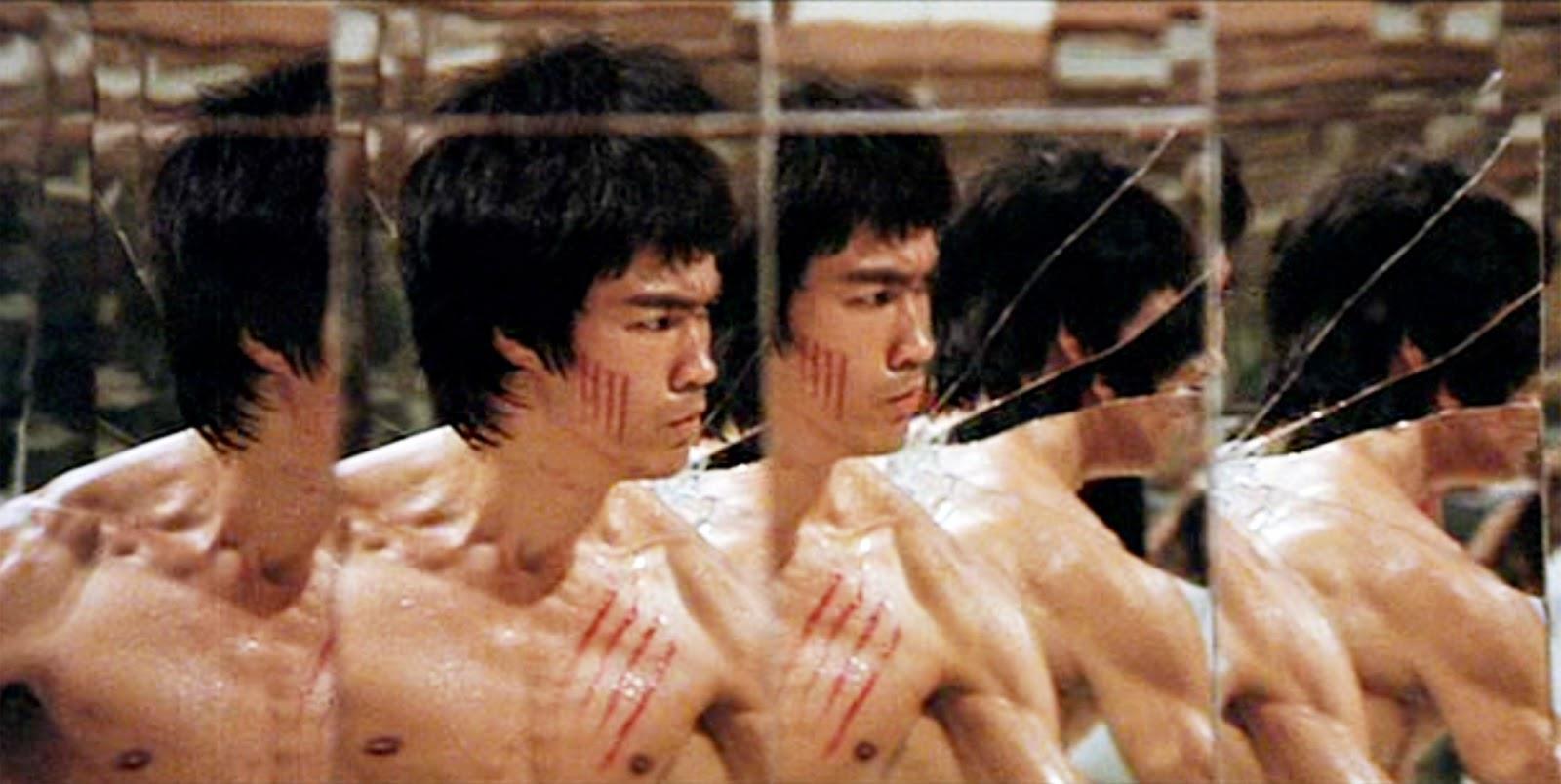
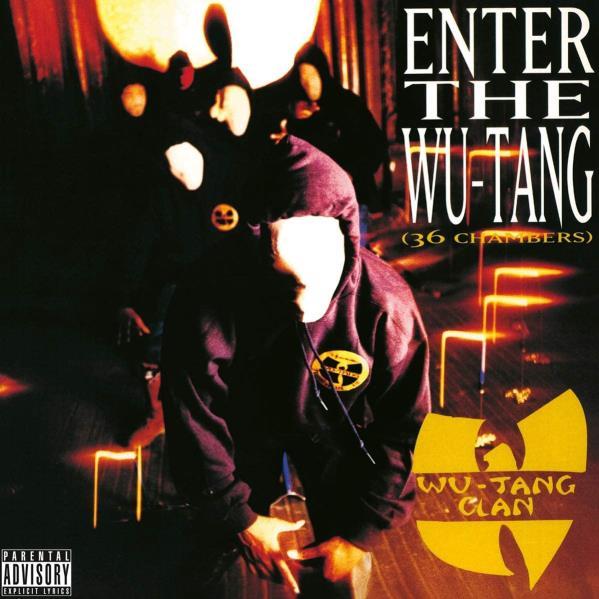
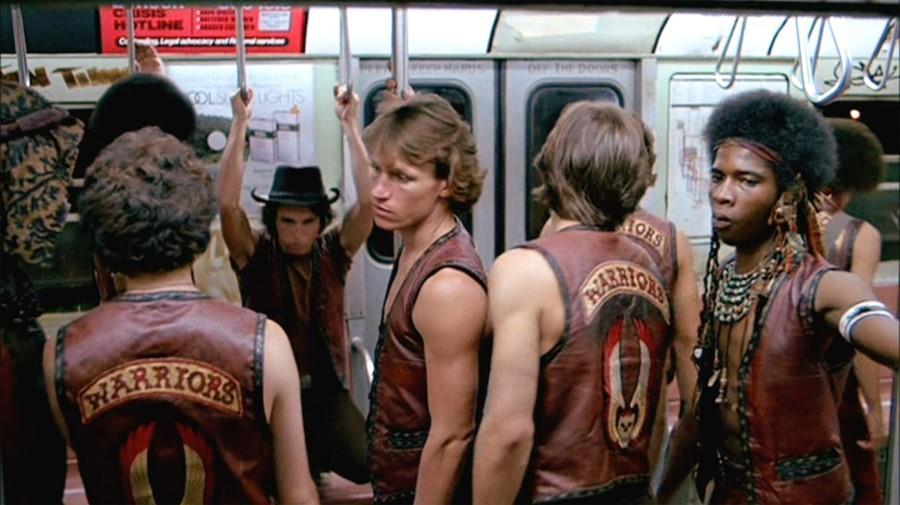
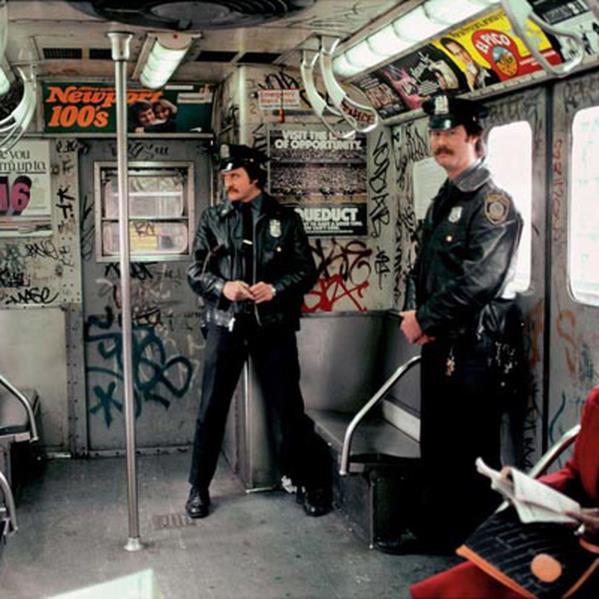
Violent sports and media perpetuation can be seen in many films such as Rollerball, The Running Man and Death Race 2000. It's the focus on adolescent teenagers that makes Royale stand out. These are people with playground crushes who have grown up reading about romance and are starting to experience such feelings first hand. Love is a Battlefield as the great philosopher Pat Benatar once said. The battlefield here is teenage angst. High school is where one feels for the first time and feels the hardest. The emotions are at the most extreme. The film pushes such an idea as far as it can go.
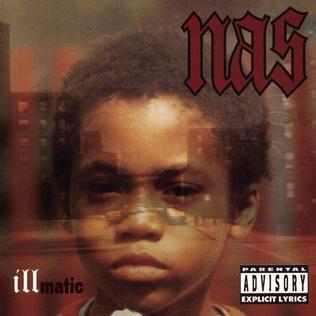
25
Battle Royale brings these internal emotions on to an external battlefield. The raw feelings become concrete. The simplicity and ease to create the hunt movie is evident in the lousy, 'The Hunt', a pathetic movie which the liberal 'good' guys take on right wingers. If that awful movie can take advantage of such a setup, any can. Makes you wonder why action movies like Bullet Train don't go for PsychoCondo, it adds substance and takes nothing away from pacing because it's so predominantly visual.

Yes, mobile vehicles can slide in to PsychoCondo. Already discussed the boat in Apocalypse Now. In Runaway Train, the train is symbolic of freedom. We get one of the finest endings in film history, as escaped convict Jon Voight rides that fucker to freedom with Gloria in D Major blaring out. An ingenious move because if the screen didn't fade to black when it did, the entire meaning and power of the image would be lost. If it went on a few seconds later, then it wouldn't preserve the message as it does. I don't care what happens after the image we're left with. That final image is the final image. True freedom.
Forgetting how Cassavetes's Love Streams weirdly ended up as a Canon release (still don't know how that happened), this ending is the closest the trashy distribution company (that I love and grew up with) ever got to a state of poetic high art. My guess is the script originally coming from Kurosawa might have steered it in the right direction. They say Unstoppable is a metaphor for runaway capitalism but I've never really got much from it other than being the fun final output of the great Tony Scott. Didn't affect me like it did Runaway Train. Some may try to push John Frankenheimer's The Train in PsychoCondo. If he had a few more films like that in his career, Frankenheimer could have actually turned in to the American Kurosawa for his mixing of action and the epic. Ronin only cements this notion and makes the link between the directors clearer. The Train is a masterpiece about whether the value of art is important enough to be lose lives over in war time but I'm not sure it qualifies as PsychoCondo since the focus is on the paintings and artworks (props) on board rather than the train itself.
Cosmopolis provides an all-purpose functioning limousine. An apocalypse can be seen outside the windows but inside is an attempt at order and stability. The financially protected protagonist has little involvement and the stakes are low with his main goal being getting a haircut. Yet, the protagonist can't help but desire some disorder, later shooting himself in the hand as he leaves the car for the chaos. Likewise, in Crash automobiles become not just a site for sex with other humans but our intoxicating relationship with technology. Spike Jonze did it with Her and make a quirky rom com that was widely accepted. About the weirdest he got was masturbating to Alexa. Cronenberg's film was an absolute riot and went a lot further in its grotesquery rattling those who attended its premiere at Cannes.
Even the road itself can become a place for PsychoCondo. In previous issues, I have written about Godard's Weekend using the road to commence war between communists and fascists. An idyllic trip to the countryside slowly turning in to a great battle between two ideologies. To the Japanese, the road is uncertainty, danger and bloodshed in the likes of Shogun Assassin and Rashomon. Threats lurk around every corner even if you are looking for a casual stroll. In Shogun, blood red stains the road. Whereas, Rashomon, there is no clear colour, only that which forms in the mind based on the information given. The first film to really challenge the nature of visual storytelling and present wholly unreliable narrators. Kurosawa leaves so much of the 'building' of the condominium to the audience.
In Easy Rider, it is faith in a dream akin to One Flew Over the Cuckoo's Nest. A modern take on Manifest Destiny and what became of America. The majority of the movie is two bikers bickering as they see what they believe in evaporating around them. Zabriskie Point goes into similar territory, taking the true story of a student borrowing a plane for a joy ride then being shot on return. In this film, the desert is seen as an open break from the clutches of capitalism and representative of new opportunities ideologically speaking. His death on return is a tragic demonstration of the lack of hope for change. In anger, a luxurious mansion is then blown apart to Pink Floyd in a scene that would make Michael Bay stand to attention.
26
The films of Michele Soavi are highly underrated in my book. His story a tragic one which only makes me warm to him more. Dario Argento saw greatness in him and produced a few of his films to get him some more attention. Unfortunately his son died and he never fully recovered and took a big step back from filmmaking. Hence why he only has about 4 known films (Stage Fright, The Church, The Sect and Cemetery Man). When he tried to return all he could get was television work and adopted a more workmanlike approach. To be honest, he deserves an entire piece about him at some point but The Sect is a particular favourite. In this one, he uses the road as an inverse to Easy Rider and Zabriskie Point revealing the darker side of the American dream and hippie revolution. The road becomes a place for Manson cults and Rolling Stones tracks like 'Sympathy for the Devil' observed for their satanic references.
Despite belonging to different genres, namely biker and western, Bury me an Angel and Keoma share this idea of the road as Freudian. An incestuous horror show equal parts violent and psychedelic. This could well tie in to the concept of the father/mother as indicating the collective guilt and scars of the past and unwanted infiltration of Limbo from other dreamers.
Of course, in the hands of the Aussies it is complete anarchy. A barren wasteland with little oil and a whole lot of sun. The vehicle a symbol of power. Companionship the only means to survival but trust none existent. A lone drifter emerges in Mad Max, who scours the land like an old western hero. Wake in Fright leans in to Apocalypse Now with a teacher well and truly getting off the boat. In this case, a train which appears to be the only linking factor between these isolated towns. Cut off from the rest of the world, he descends in to Aussie cultures he can't handle. What does that involve? Boredom, alcoholism and kangaroo hunting. Once again, nature and animals caught in the crossfire of our madness. As a viewer, you feel the scorching heat more than any other movie. It'll leave you in such a daze, that you'll half want to watch it again to understand what you really saw and half be so scarred you never want to see it again. Upon rewatches, if you do manage to get there, you'll notice the subtle homosexual activity taking place alongside the drinking and kangaroo killing. However, more on repressed urges in part 2.
This draws us to the end of part 1 of what is PsychoCondo. Hopefully, using the examples I have demonstrated that this is a legitimate style worthy of study with value and underwritten. A tool that could be used to unlock and unpackage more of a film through a psychoanalytic approach of space. When used well it could literally lead in to a map of a directors mind. We could see more than what's given and past the barrier of the frame. Both what the filmmaker is consciously and subconsciously projecting.
There has not been enough time to acknowledge all locations but in this first half I have sought to deal with those which use asylums and different kinds of battlefields to contain artists themes and have these wage war against other as part of controlled narrative conflict. Using PsychoCondo can provide the opportunity to reflect on how different directors view the exact same environments. Therefore, illustrating it can benefit auteur theory as well as the still relatively new psychoanalysis of film. Alongside this, what has been left behind by other dreamers who have shared space in limbo causing a horror of history. This leads to a corruption of individual vision and shared similarities constituting the human experience. I have wanted to emphasise that PsychoCondo should not just be restricted to high art and could benefit trashy action movies by increasing their substance whilst maintaining decent economy and pacing due to it being something that can be applied visually.
In the next issue, I will expand on films like Crash and Wake in Fright which use space to confront arousal and desire. An area in which characters can encounter the true face of their repressed sexuality whether that be through invaders of the home or when in anonymous isolated locations. PsychoCondo is the competing of ideologies, themes and personalities within a location. A power struggle. Naturally, Sex is bound to follow then when we're dealing with power struggle. Cause let's be truthful, this obsessive study of space is purely erotic.
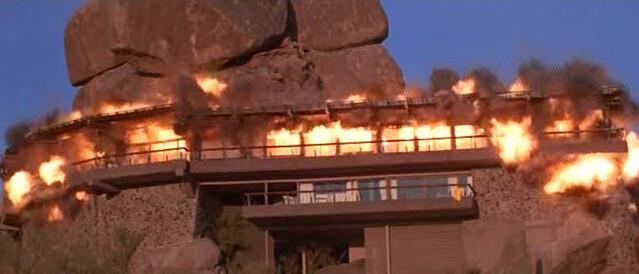
27







































